People Awarded By Bharat Ratna
India is a proud land of stellar personalities. Civilian awards are bestowed by the central Government to honour the contributions of these great personalities. Among these awards, Bharat Ratna is the highest civilian honour introduced in 1954. They are given for exceptional works towards the advancement of Sports, Literature, Art, Politics, Public Service and Science. The award is conferred by the President of India in a ceremonial function held at the presidential palace. Awardees receive a ‘Peepal leaf’ shaped medallion with a sun having ‘Bharat Ratna’ etched on it. On the reverse side is the State Emblem of India in the centre with the National motto ‘Satyamev Jayate’ in Devanagri script. Below you can see the list of people awarded by Bharat Ratna. Do you know, there is no provision that Bharat Ratna should be awarded to Indian citizens only. Moreover, it is also not mandatory that these awards be awarded each year.
C. Rajgopalachari
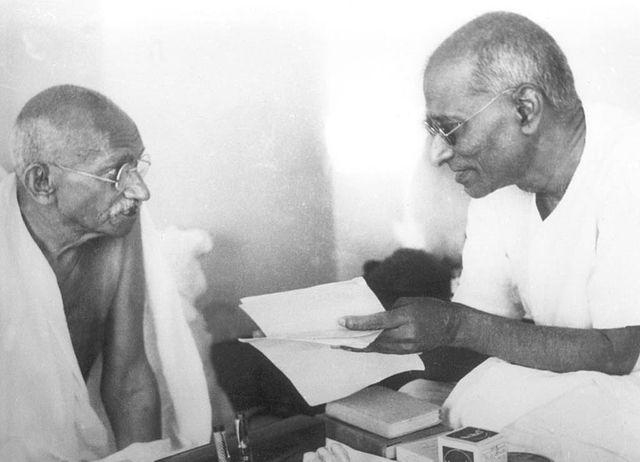
1954
Chakravarti Rajagopalachari (10 December 1878 – 25 December 1972), informally called Rajaji or C.R., was an Indian politician, independence activist, lawyer, writer, historian and statesman. Rajagopalachari was the last Governor-General of India, as India soon became a Republic in 1950. Furthermore, he was the first Indian-born governor-general, since before him the posts were held by British nationals. He also served as leader of the Indian National Congress, Premier of the Madras Presidency, Governor of West Bengal, Minister for Home Affairs of the Indian Union and Chief Minister of Madras state. Rajagopalachari founded the Swatantra Party and was one of the first recipients of India’s highest civilian award, the Bharat Ratna. He vehemently opposed the use of nuclear weapons and was a proponent of world peace and disarmament. During his lifetime, he also acquired the nickname ‘Mango of Salem’.
Rajagopalachari was born in the Thorapalli village of Hosur taluk in the Krishnagiri district of Tamil Nadu and was educated at Central College, Bangalore, and Presidency College, Madras. In 1900’s he started legal practice at the Salem court. On entering politics, he became a member and later President of the Salem municipality. He joined the Indian National Congress and participated in the agitations against the Rowlatt Act, joining the Non-Cooperation movement, the Vaikom Satyagraha, and the Civil Disobedience movement. In 1930, Rajagopalachari risked imprisonment when he led the Vedaranyam Salt Satyagraha in response to the Dandi March. In 1937, Rajagopalachari was elected Prime minister of the Madras Presidency and served until 1940, when he resigned due to Britain’s declaration of war on Germany. He later advocated co-operation over Britain’s war effort and opposed the Quit India Movement. He favoured talks with both Muhammad Ali Jinnah and the Muslim League and proposed what later came to be known as the C. R. formula. In 1946, Rajagopalachari was appointed Minister of Industry, Supply, Education and Finance in the Interim Government of India, and then as the Governor of West Bengal from 1947 to 1948, Governor-General of India from 1948 to 1950, Union Home Minister from 1951 to 1952 and as Chief Minister of Madras state from 1952 to 1954. In 1959, he resigned from the Indian National Congress and founded the Swatantra Party, which fought against the Congress in the 1962, 1967 and 1971 elections. Rajagopalachari was instrumental in setting up a united Anti-Congress front in Madras state under C. N. Annadurai, which swept the 1967 elections. He died on 25 December 1972 at age 94.
Rajagopalachari was an accomplished writer who made lasting contributions to Indian English literature and is also credited with composition of the song Kurai Onrum Illai set to Carnatic music. He pioneered temperance and temple entry movements in India and advocated Dalit upliftment. He has been criticised for introducing the compulsory study of Hindi and the controversial Madras Scheme of Elementary Education in Madras State. Critics have often attributed his pre-eminence in politics to his standing as a favourite of both Mahatma Gandhi and Jawaharlal Nehru. Rajagopalachari was described by Gandhi as the “keeper of my conscience”.
Read More About C. Rajgopalachari / Source
Sarvepalli Radhakrishnan
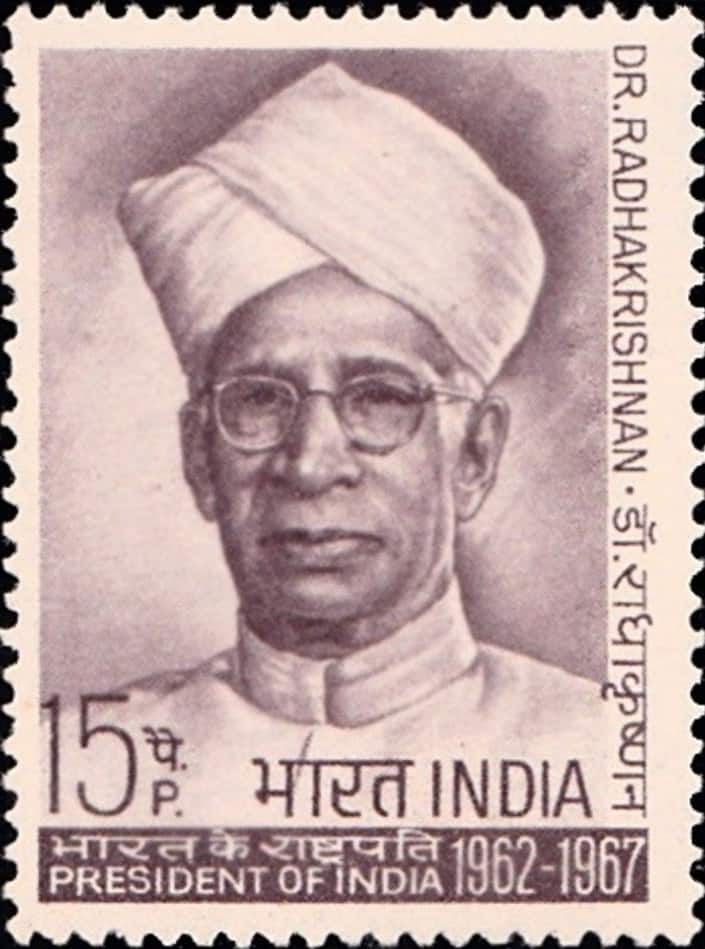
1954
Sarvepalli Radhakrishnan pronunciation (5 September 1888 – 17 April 1975) was an Indian philosopher, academic, and statesman who served as the first Vice President of India (1952–1962) and the second President of India (1962–1967).One of India’s most distinguished twentieth-century scholars of comparative religion and philosophy, after completing his education at Madras Christian College in 1911, he became Assistant Professor and later Professor of Philosophy at Madras Presidency College then subsequently Professor of Philosophy at the University of Mysore (1918-1921); the King George V Chair of Mental and Moral Science at the University of Calcutta (1921–1932) and Spalding Professor of Eastern Religion and Ethics at University of Oxford (1936–1952) by which he became the first Indian to hold a professorial chair at the University of Oxford. He was Upton Lecturer at Manchester College, Oxford in 1926, 1929, and 1930. In 1930 he was appointed Haskell lecturer in Comparative Religion at the University of Chicago.His philosophy was grounded in Advaita Vedanta, reinterpreting this tradition for a contemporary understanding. He defended Hinduism against what he called “uninformed Western criticism”, contributing to the formation of contemporary Hindu identity. He has been influential in shaping the understanding of Hinduism, in both India and the west, and earned a reputation as a bridge-builder between India and the West.Radhakrishnan was awarded several high awards during his life, including a knighthood in 1931, the Bharat Ratna, the highest civilian award in India, in 1954, and honorary membership of the British Royal Order of Merit in 1963. He was also one of the founders of Helpage India, a non profit organisation for elderly underprivileged in India. Radhakrishnan believed that “teachers should be the best minds in the country”. Since 1962, his birthday has been celebrated in India as Teachers’ Day on 5 September every year.He is the only President of India who could not attend the Delhi Republic Day parade due to his ill health.
Read More About Sarvepalli Radhakrishnan / Source
C. V. Raman
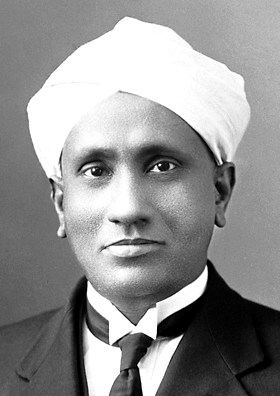
1954
Chandrasekhara Venkata Raman (7 November 1888 – 21 November 1970) was an Indian physicist who made groundbreaking works in the field of light scattering. With his student K. S. Krishnan, he discovered that when light traverses a transparent material, some of the deflected light change wavelength and amplitude. This phenomenon was a new type of scattering of light and was subsequently known as the Raman effect (Raman scattering). Raman won the 1930 Nobel Prize in Physics and was the first Asian person to receive a Nobel Prize in any branch of science.Born to Hindu Tamil Brahmin parents, Raman was a precocious child, completing his secondary and higher secondary education from St Aloysius’ Anglo-Indian High School at the ages of 11 and 13, respectively. He topped bachelor’s degree examination at the University of Madras with honours in physics from Presidency College at age 16. His first research paper, on diffraction of light, was published in 1906 while still a graduate student. The next year he obtained an M.A. degree. He was 19 years of age when he joined the Indian Finance Service in Kolkata as Assistant Accountant General. There he became acquainted with the Indian Association for the Cultivation of Science (IACS), the first research institute in India, which allowed him to do independent research and where he made his major contributions in acoustics and optics.
In 1917, he was appointed as the first Palit Professor of Physics by Ashutosh Mukherjee at the Rajabazar Science College under the University of Calcutta. On his first trip to Europe, seeing the Mediterranean Sea motivated him to correctly describe the reason for the blue colour of the sea as a phenomenon of diffraction. He founded the Indian Journal of Physics in 1926. He and Krishnan discovered on 28 February 1928 a novel phenomenon of light scattering, which they called “modified scattering,” but more famously known as the Raman effect. The day is celebrated by the Government of India as the National Science Day every year. Raman moved to the Indian Institute of Science in Bangalore in 1933 to become its first Indian Director. There he founded the Indian Academy of Sciences the same year. He established the Raman Research Institute in 1948 where he worked to his last days.
In 1954, the Government of India honoured him with the first Bharat Ratna (along with politician C. Rajagopalachari and philosopher Sarvepalli Radhakrishnan), its highest civilian award. He later smashed the medallion in protest against Prime Minister Jawaharlal Nehru’s policies on scientific research.
Read More About C. V. Raman / Source
Sir M Visvesvarya
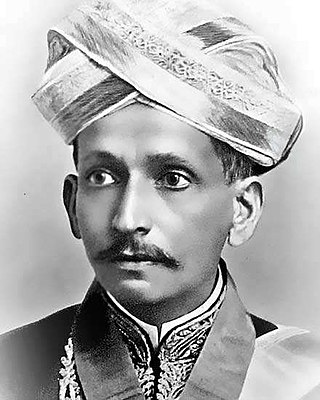
1955
Sir Mokshagundam Visvesvaraya FASc, more commonly known as Sir MV (15 September 1860 – 14 April 1962), was an Indian Civil Engineer (he persued his degree from one of the Best Engineering College at that time and 3rd Oldest college in Asia College of Engineering, Pune) and statesman and the 19th Diwan of Mysore, serving from 1912 to 1919. He received India’s highest honour, the Bharat Ratna, in 1955. He was knighted as a Knight Commander of the British Indian Empire (KCIE) by King George V for his contributions to the public good. His birthday, 15 September, is celebrated as Engineers’ Day in India, Sri Lanka and Tanzania in his memory. He was the Chief Engineer of Krishna Raja Sagara dam in the north-west suburb of Mysuru city, and also served as one of the Chief Engineers of the flood protection system for the city of Hyderabad.
Read More About Sir M Visvesvarya / Source
Bhagwan Das
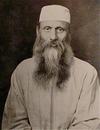
1955
Bhagwan Das (12 January 1869 – 18 September 1958) was an Indian Theosophist and public figure. For a time he served in the Central Legislative Assembly of British India. He became allied with the Hindustani Culture Society and was active in opposing rioting as a form of protest. As an advocate for national freedom from the British rule, he was often in danger of reprisals from the Colonial government. He was awarded the Bharat Ratna in 1955.
Read More About Bhagwan Das / Source
Jawaharlal Nehru
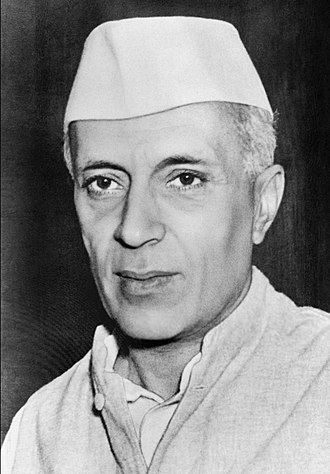
1955
Jawaharlal Nehru (14 November 1889 – 27 May 1964) was an Indian independence activist and, subsequently, the first Prime Minister of India, as well as a central figure in Indian politics both before and after independence. He emerged as an eminent leader of the Indian independence movement, serving India as Prime Minister from its establishment in 1947 as an independent nation, until his death in 1964. He was also known as Pandit Nehru due to his roots with the Kashmiri Pandit community, while Indian children knew him better as Chacha Nehru (Hindi: Uncle Nehru).The son of Swarup Rani and Motilal Nehru, a prominent lawyer and nationalist statesman, Nehru was a graduate of Trinity College, Cambridge and the Inner Temple, where he trained to be a barrister. Upon his return to India, he enrolled at the Allahabad High Court and took an interest in national politics, which eventually replaced his legal practice. A committed nationalist since his teenage years, he became a rising figure in Indian politics during the upheavals of the 1910s. He became the prominent leader of the left-wing factions of the Indian National Congress during the 1920s, and eventually of the entire Congress, with the tacit approval of his mentor, Gandhi. As Congress President in 1929, Nehru called for complete independence from the British Raj and instigated the Congress’s decisive shift towards the left.
Nehru and the Congress dominated Indian politics during the 1930s as the country moved towards independence. His idea of a secular nation-state was seemingly validated when the Congress swept the 1937 provincial elections and formed the government in several provinces; on the other hand, the separatist Muslim League fared much poorer. However, these achievements were severely compromised in the aftermath of the Quit India Movement in 1942, which saw the British effectively crush the Congress as a political organisation. Nehru, who had reluctantly heeded Gandhi’s call for immediate independence, for he had desired to support the Allied war effort during World War II, came out of a lengthy prison term to a much altered political landscape. The Muslim League under his old Congress colleague and now opponent, Muhammad Ali Jinnah, had come to dominate Muslim politics in India. Negotiations between Congress and Muslim League for power sharing failed and gave way to the independence and bloody partition of India in 1947.
Nehru was elected by the Congress to assume office as independent India’s first Prime Minister, although the question of leadership had been settled as far back as 1941, when Gandhi acknowledged Nehru as his political heir and successor. As Prime Minister, he set out to realise his vision of India. The Constitution of India was enacted in 1950, after which he embarked on an ambitious program of economic, social and political reforms. Chiefly, he oversaw India’s transition from a colony to a republic, while nurturing a plural, multi-party system. In foreign policy, he took a leading role in the Non-Aligned Movement while projecting India as a regional hegemon in South Asia.
Under Nehru’s leadership, the Congress emerged as a catch-all party, dominating national and state-level politics and winning consecutive elections in 1951, 1957, and 1962. He remained popular with the people of India in spite of political troubles in his final years and failure of leadership during the 1962 Sino-Indian War. In India, his birthday is celebrated as Bal Diwas (Children’s Day).
Read More About Jawaharlal Nehru / Source
Govind Ballabh Pant
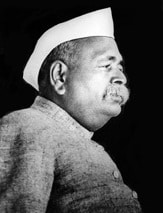
1957
Govind Ballabh Pant (10 September 1887 – 7 March 1961) was an Indian freedom fighter and one of the architects of modern India. Alongside Mahatma Gandhi, Jawaharlal Nehru and Vallabh Bhai Patel, Pant was a key figure in the movement for India’s Independence and later a pivotal figure in the Indian Government. He was one of the foremost political leaders of Uttar Pradesh (then known as United Provinces) and a key player in the unsuccessful movement to establish Hindi as the national language of Indian Union.
Today, several Indian hospitals, educational institutions and foundations bear his name. Pant received India’s highest civilian honour, the Bharat Ratna, in 1957.
Read More About Govind Ballabh Pant / Source
Dhondo Keshav Karve
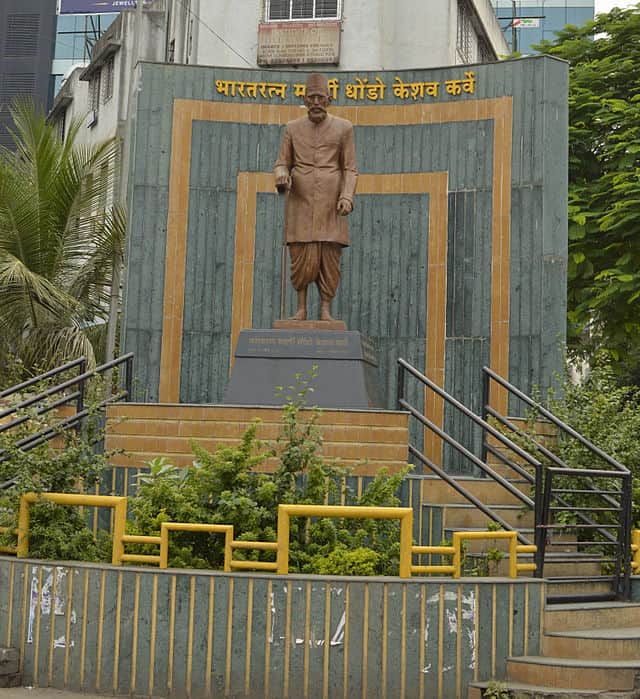
1958
Dhondo Keshav Karve (18 April 1858 – 9 November 1962), popularly known as Maharshi Karve, was a social reformer in India in the field of women’s welfare He advocated widow remarriage and he himself married a widow. In his honour, Queen’s Road in Mumbai (Bombay) was renamed to Maharshi Karve Road. Karve was a pioneer in promoting widows’ education. The Government of India awarded him with the highest civilian award, the Bharat Ratna, in 1958, the year of his 100th birthday.
The appellation Maharshi, which the Indian public often assigned to Karve, means “a great sage”.
Read More About Dhondo Keshav Karve / Source
Bindhan Chandra Roy
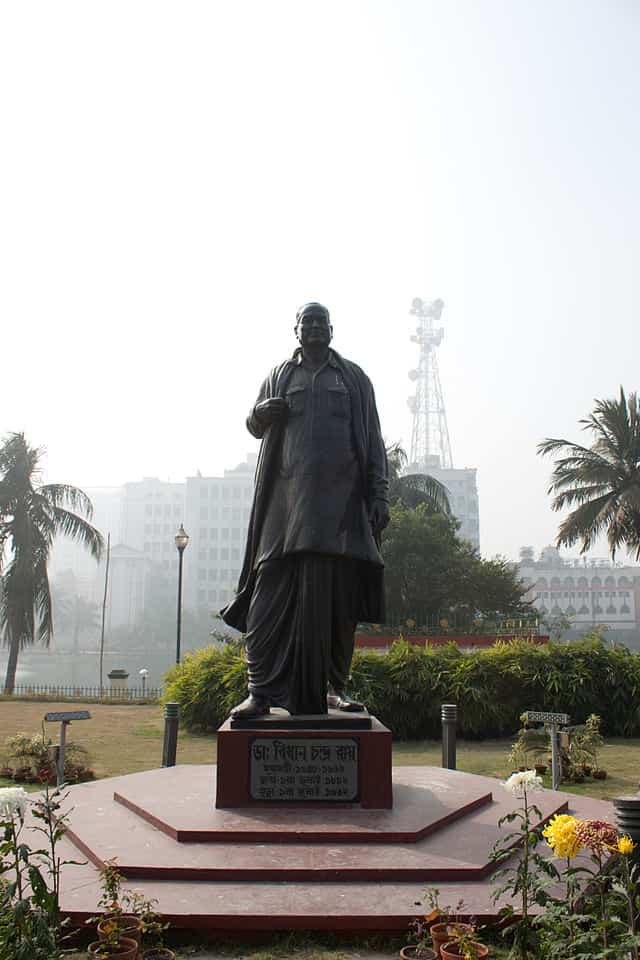
1961
Bidhan Chandra Roy MD, DSc, MRCP, FRCS (1 July 1882 – 1 July 1962) was an eminent Indian physician, educationist, philanthropist, freedom fighter and politician who served as the Chief Minister of West Bengal from 1948 until his death in 1962. Bidhan Roy is often considered the Maker of Modern West Bengal due to his key role in the founding of several institutions and five eminent cities, Durgapur, Kalyani, Bidhannagar, Ashokenagar and Habra. He is one of the few people in history to have obtained F.R.C.S. and M.R.C.P. degrees simultaneously. In India, the National Doctors’ Day is celebrated in his memory every year on 1 July. He was awarded Bharat Ratna on 4 February 1961, India’s highest civilian honour.
Read More About Bindhan Chandra Roy / Source
Rajendra Prasad
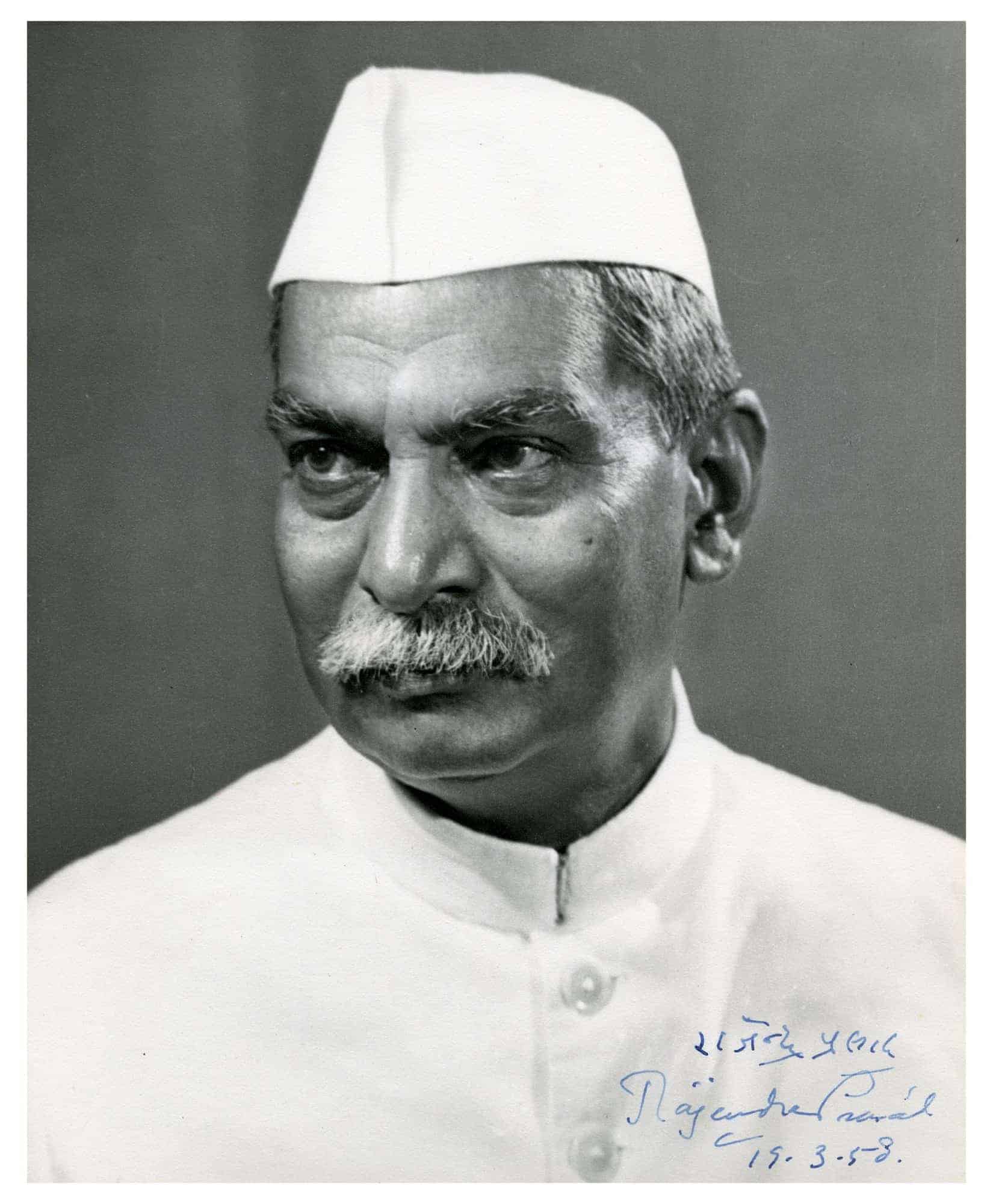
1962
Rajendra Prasad (3 December 1884 – 28 February 1963) was an Indian independence activist, lawyer, scholar and subsequently, the first President of India, in office from 1950 to 1962. He was an Indian political leader and lawyer by training. Prasad joined the Indian National Congress during the Indian Independence Movement and became a major leader from the region of Bihar. A supporter of Mahatma Gandhi, Prasad was imprisoned by British authorities during the Salt Satyagraha of 1931 and the Quit India movement of 1942. After the 1946 elections, Prasad served as Minister of Food and Agriculture in the central government. Upon independence in 1947, Prasad was elected as President of the Constituent Assembly of India, which prepared the Constitution of India and served as its provisional parliament.
When India became a republic in 1950, Prasad was elected its first president by the Constituent Assembly. As president, Prasad established a tradition of non-partisanship and independence for the office-bearer, and retired from Congress party politics. Although a ceremonial head of state, Prasad encouraged the development of education in India and advised the Nehru government on several occasions. In 1957, Prasad was re-elected to the presidency, becoming the only president to serve two full terms. Prasad stayed in office for the longest term of around 12 years. Post the completion of his tenure, he quit the Congress and set up new guidelines for parliamentarians which are still followed. Prasad played a major role in forming the Bihari Students Conference in 1906 and served as the president of the Constituent Assembly that drafted the Constitution of India.
Read More About Rajendra Prasad / Source
Purushottam Das Tandon
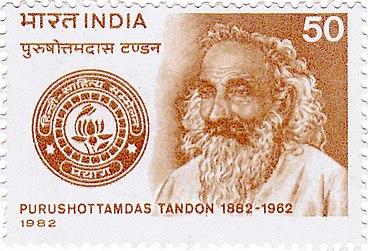
1961
Purushottam Das Tandon ( 1 August 1882 – 1 July 1962) was a freedom fighter from Uttar Pradesh, India. He is widely remembered for his opposition to the partition of India, as well as efforts in achieving the Official Language of India status for Hindi. He was customarily given the title Rajarshi (etymology: Raja + Rishi = Royal Saint). He was popularly known as UP Gandhi. He was awarded the Bharat Ratna, India’s highest civilian award, in 1961.
Read More About Purushottam Das Tandon / Source
Zakir Husain (politician)
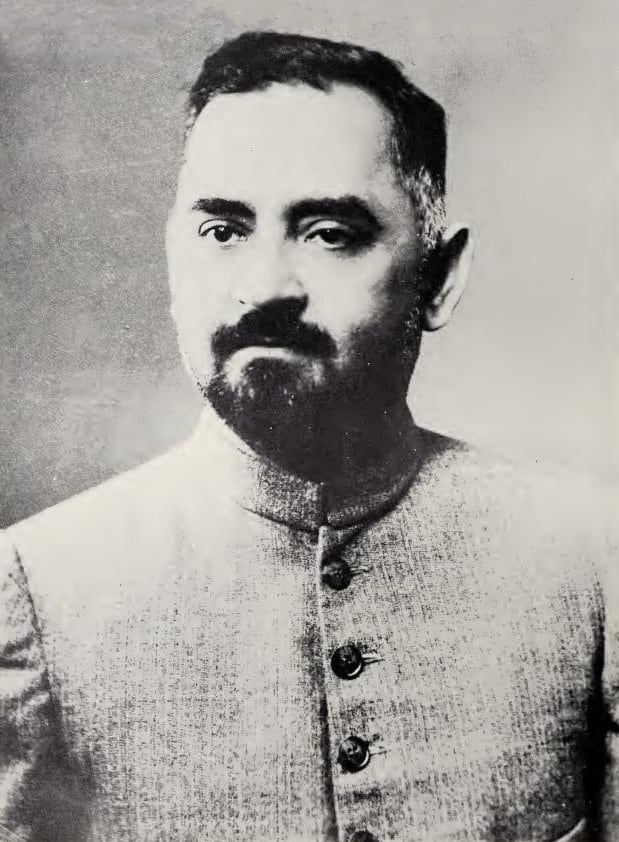
1963
Zakir Husain Khan (8 February 1897 – 3 May 1969) was an Indian economist and politician who served as the third President of India, from 13 May 1967 until his death on 3 May 1969.
He previously served as Governor of Bihar from 1957 to 1962 and as Vice President of India from 1962 to 1967. He was also the co-founder of Jamia Milia Islamia, serving as its Vice-chancellor from 1928. Under Husain, Jamia became closely associated with the Indian freedom movement. He was awarded the Bharat Ratna, India’s highest civilian honour, in 1963.
He was the first Muslim president of India and the first Indian president to die in office.
Read More About Zakir Husain (politician) / Source
Pandurang Vaman Kane
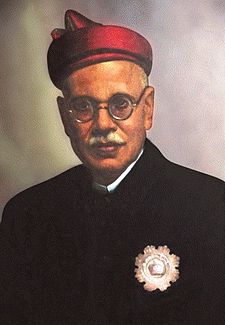
1963
Pandurang Vaman Kane (pronounced Kaa-nay) (7 May 1880 – 8 May 1972) was a notable Indologist and Sanskrit scholar. He received India’s highest civilian award Bharat Ratna in 1963 for his scholarly work that spanned more than 40 years of active academic research that resulted in 6,500 pages of History of Dharmaśāstra. The historian Ram Sharan Sharma says: “Pandurang Vaman Kane, a great Sanskritist wedded to social reform, continued the earlier tradition of scholarship. His monumental work entitled the “History of the Dharmasastra”, published in five volumes in the twentieth century, is an encyclopedia of ancient social laws and customs. This enables us to study the social processes in ancient India.”
Read More About Pandurang Vaman Kane / Source
Lal Bahadur Shastri
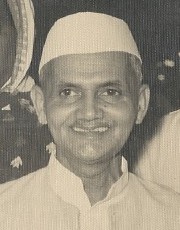
1966
Lal Bahadur Shastri (2 October 1904 – 11 January 1966) was an Indian politician who served as the second Prime Minister of India. He promoted the White Revolution – a national campaign to increase the production and supply of milk – by supporting the Amul milk co-operative of Anand, Gujarat and creating the National Dairy Development Board. Underlining the need to boost India’s food production, Shastri also promoted the Green Revolution in India in 1965. This led to an increase in food grain production, especially in Punjab, Haryana and Uttar Pradesh.
Shastri was born to Sharada Prasad Srivastava and Ramdulari Devi in Mughalsarai on 2 October 1904, sharing his birthday with Mahatma Gandhi. He studied in East Central Railway Inter college and Harish Chandra High School, which he left to join the non-cooperation movement. He worked for the betterment of the Harijans at Muzaffarpur and dropped his caste-derived surname of “Srivastava”. Shastri’s thoughts were influenced by reading about Swami Vivekananda, Gandhi and Annie Besant. Deeply impressed and influenced by Gandhi, he joined the Indian independence movement in the 1920s. He served as the president of Servants of the People Society (Lok Sevak Mandal), founded by Lala Lajpat Rai and held prominent positions in Indian National Congress. Following independence in 1947, he joined the Indian government and became one of Prime Minister Nehru’s key cabinet colleagues, first as Railways Minister (1951–56), and then in numerous other prominent positions, including the Home Minister.
He led the country during the Indo-Pakistan War of 1965. His slogan “Jai Jawan, Jai Kisan” (“Hail to the soldier; Hail to the farmer”) became very popular during the war. The war formally ended with the Tashkent Agreement on 10 January 1966; he died the following day, still in Tashkent, with the cause of his death in dispute; it was reported to be a cardiac arrest but his family was not satisfied with the proffered reason. He was posthumously awarded the Bharat Ratna.
Read More About Lal Bahadur Shastri / Source
Indira Gandhi
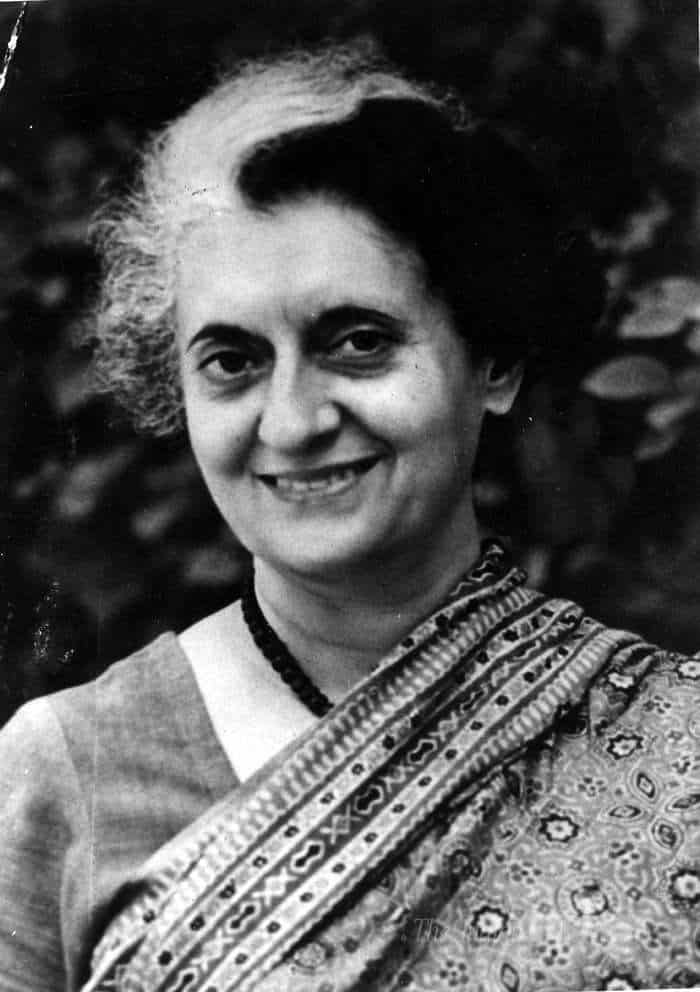
1971
Indira Priyadarshini Gandhi ( 19 November 1917 – 31 October 1984) was an Indian politician and a central figure of the Indian National Congress. She was the first and, to date, only female Prime Minister of India. Indira Gandhi was the daughter of Jawaharlal Nehru, the first prime minister of India. She served as prime minister from January 1966 to March 1977 and again from January 1980 until her assassination in October 1984, making her the second longest-serving Indian prime minister after her father.During Nehru’s time as Prime Minister of India from 1947 to 1964, Gandhi was considered a key assistant and accompanied him on his numerous foreign trips. She was elected President of the Indian National Congress in 1959. Upon her father’s death in 1964, she was appointed as a member of the Rajya Sabha (upper house) and became a member of Lal Bahadur Shastri’s cabinet as Minister of Information and Broadcasting. In the Congress Party’s parliamentary leadership election held in early 1966 (upon the death of Shastri), she defeated her rival Morarji Desai to become leader, and thus succeeded Shastri as Prime Minister of India.
As prime minister, Gandhi was known for her political intransigency and unprecedented centralisation of power. She went to war with Pakistan in support of the independence movement and war of independence in East Pakistan, which resulted in an Indian victory and the creation of Bangladesh, as well as increasing India’s influence to the point where it became the sole regional power of South Asia. Citing separatist tendencies, and in response to a call for revolution, Gandhi instituted a state of emergency from 1975 to 1977 where basic civil liberties were suspended and the press was censored. Widespread atrocities were carried out during the emergency. In 1980, she returned to power after free and fair elections. After Gandhi ordered military action in the Golden Temple in Operation Blue Star, her own bodyguards and Sikh nationalists assassinated her on 31 October 1984.
In 1999, Indira Gandhi was named “Woman of the Millennium” in an online poll organised by the BBC. In 2020 Gandhi was named by the Time magazine among world’s 100 powerful women who defined the last century.
Read More About Indira Gandhi / Source
Varahagiri Venkata Giri
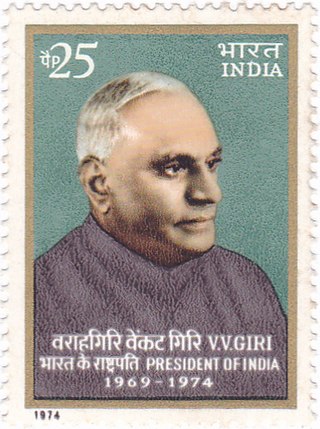
1975
Varahagiri Venkata Giri ( Telugu: వరాహగిరి వేంకటగిరి; 10 August 1894 – 24 June 1980) was the fourth president of India from 24 August 1969 to 24 August 1974. He was the only president to be elected as an independent candidate. He was succeeded by Fakhruddin Ali Ahmed as president in 1974. After the end of his full term, Giri was honoured by the Government of India with the Bharat Ratna in 1975. Giri died on 24 June 1980. His great grandson V. Giri Shankar is an Advocate of the Madras High Court, Chennai.
Read More About Varahagiri Venkata Giri / Source
K. Kamaraj
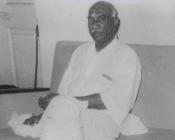
1976
Kumaraswami Kamaraj (15 July 1903 – 2 October 1975), was the founder and the president of the Indian National Congress (Organisation), widely acknowledged as the “Kingmaker” in Indian politics during the 1960s. He also served as the president of the Indian National Congress for two terms i.e. four years between 1964–1967 and was responsible for the elevation of Lal Bahadur Shastri to the position of Prime Minister of India after Nehru’s death and Indira Gandhi after Shastri’s death. Kamaraj was the 3rd Chief Minister of Madras State (Tamil Nadu) during 1954–1963 and a Member of Parliament, Lok Sabha during 1952–1954 and 1969–1975. He was known for his simplicity and integrity. He played a major role in developing the infrastructure of the Madras state and worked to improve the quality of life of the needy and the disadvantaged.He was involved in the Indian independence movement. As the president of the INC, he was instrumental in steering the party after the death of Jawaharlal Nehru. As the chief minister of Madras, he was responsible for bringing free education to the disadvantaged and introduced the free Midday Meal Scheme while he himself did not complete schooling. He was awarded with India’s highest civilian honour, the Bharat Ratna, posthumously in 1976.
Read More About K. Kamaraj / Source
Mother Teresa
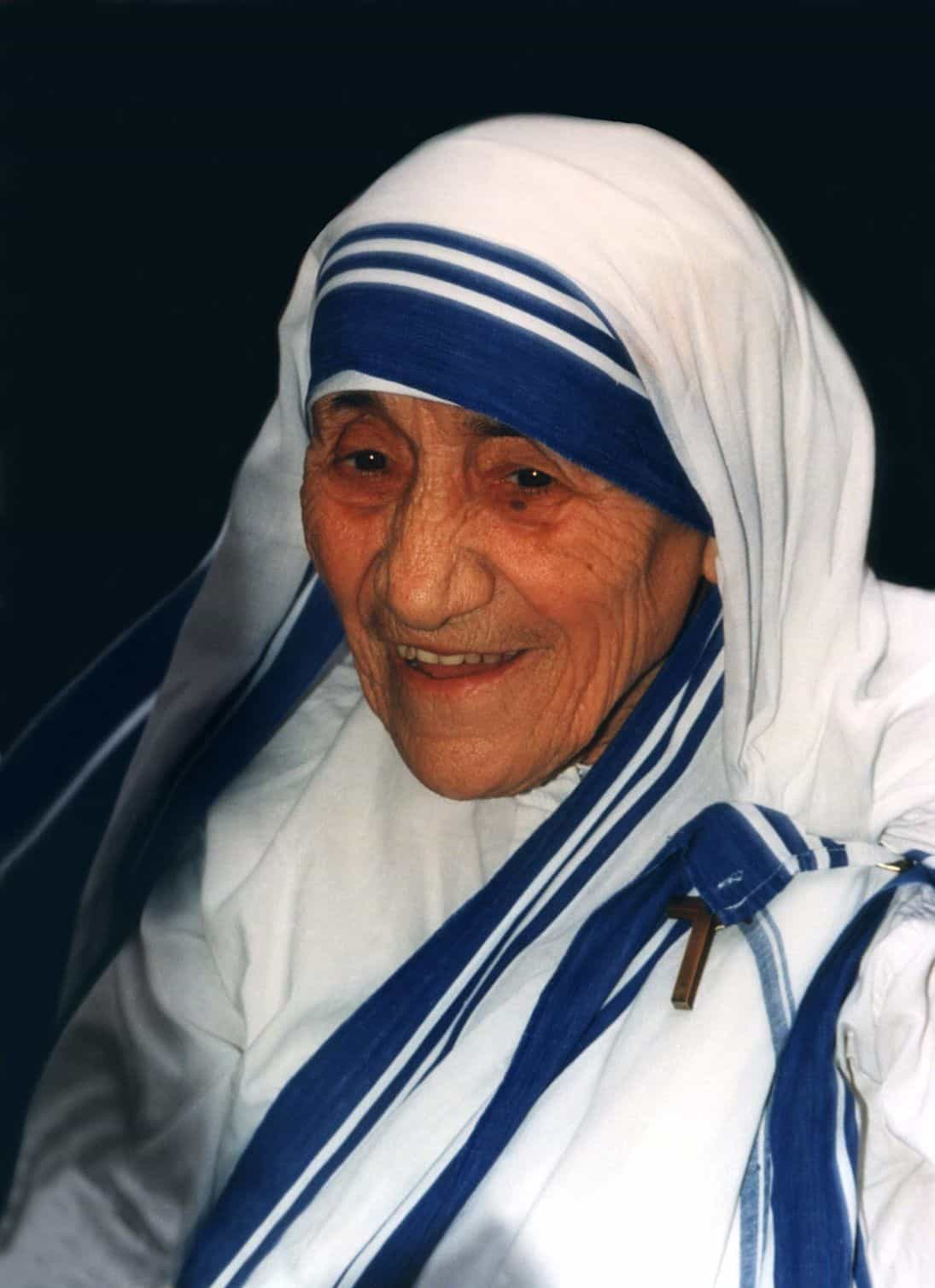
1980
Mother Mary Teresa Bojaxhiu (26 August 1910 – 5 September 1997), honoured in the Catholic Church as Saint Teresa of Calcutta, was an Albanian-Indian Roman Catholic nun and missionary. She was born in Skopje (now the capital of North Macedonia), then part of the Kosovo Vilayet of the Ottoman Empire. After living in Skopje for eighteen years, she moved to Ireland and then to India, where she lived for most of her life.
In 1950, Teresa founded the Missionaries of Charity, a Roman Catholic religious congregation that had over 4,500 nuns and was active in 133 countries in 2012. The congregation manages homes for people who are dying of HIV/AIDS, leprosy and tuberculosis. It also runs soup kitchens, dispensaries, mobile clinics, children’s and family counselling programmes, as well as orphanages and schools. Members take vows of chastity, poverty, and obedience, and also profess a fourth vow – to give “wholehearted free service to the poorest of the poor.”Teresa received a number of honors, including the 1962 Ramon Magsaysay Peace Prize and 1979 Nobel Peace Prize. She was canonised on 4 September 2016, and the anniversary of her death (5 September) is her feast day. A controversial figure during her life and after her death, Teresa was admired by many for her charitable work. She was praised and criticized on various counts, such as for her views on abortion and contraception, and was criticized for poor conditions in her houses for the dying. Her authorized biography was written by Navin Chawla and published in 1992, and she has been the subject of films and other books. On 6 September 2017, Teresa and St. Francis Xavier were named co-patrons of the Roman Catholic Archdiocese of Calcutta.
Read More About Mother Teresa / Source
Vinoba Bhave
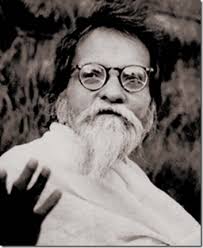
1983
Vinayak Narahari “Vinoba” Bhave ( 11 September 1895 – 15 November 1982) was an Indian advocate of nonviolence and human rights. Often called Acharya (Sanskrit for teacher), he is best known for the Bhoodan Movement. He is considered as a National Teacher of India and the spiritual successor of Mohandas Gandhi. He was an eminent philosopher. The Gita has also been translated into Marathi language by him with the name as Geetai means mother Geeta.
Read More About Vinoba Bhave / Source
M. G. Ramachandran
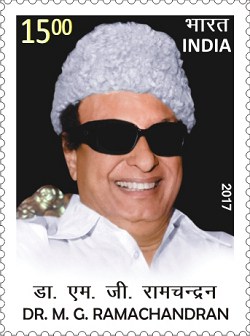
1988
Maruthur Gopalan Ramachandran (17 January 1917 – 24 December 1987), popularly known as M. G. R., was an Indian politician and film actor who served as the Chief Minister of Tamil Nadu for ten years between 1977 and 1987. He was also a philanthropist and a humanitarian icon. In 1988, M.G.R. was awarded India’s highest civilian honour, the Bharat Ratna, posthumously.
In his youth, M.G.R. and his elder brother M. G. Chakrapani became members of a drama troupe to support their family. Influenced by Gandhian ideals, MGR joined the Indian National Congress. After a few years of acting in plays, he made his film debut in the 1936 film Sathi Leelavathi in a supporting role. By the late 1940s, he graduated to the lead roles and for the next three decades dominated the Tamil film industry.
M.G.R. became a member of the C. N. Annadurai-led Dravida Munnetra Kazhagam (DMK party) and rapidly rose through its ranks, using his enormous popularity as a film star to build a large political base. In 1972, three years after Annadurai’s death, he left the DMK, then led by M.Karunanidhi, M.G.R.’s erstwhile friend and now rival, to form his own party—the All India Anna Dravida Munnetra Kazhagam (AIADMK). Five years later, M.G.R. steered an AIADMK-led alliance to victory in the 1977 election, routing the DMK in the process. He became Chief Minister of Tamil Nadu, the first film actor to become a chief minister in India. Except for a six-month interregnum in 1980, when his government was overthrown by the Union government, he remained as chief minister till his death in 1987, leading the AIADMK to two more electoral triumphs in 1980 and 1984.In October 1984, M.G.R. was diagnosed with kidney failure as a result of diabetes. He died on 24 December 1987 in his Ramavaram Gardens residence in Manapakkam after his prolonged illness. M.G.R. is regarded as a cultural icon in Tamil Nadu and is regarded as one of the most influential actors of Tamil cinema. His autobiography Naan Yaen Piranthaen (Why I was Born) was published in 2003.
Read More About M. G. Ramachandran / Source
Khan Abdul Ghaffar Khan
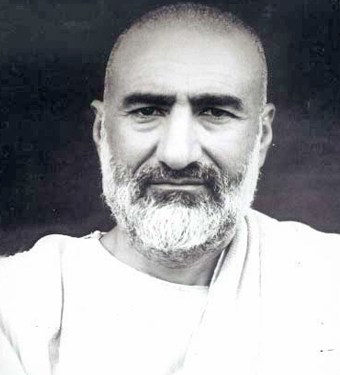
1987
Abdul Ghaffār Khān ( 6 February 1890 – 20 January 1988), also known as Bādshāh Khān (بادشاه خان, ‘King Khan’) or Bāchā Khān (باچا خان, ‘King of Chiefs’) and honourably addressed as Fakhr-e-Afghan (فخرِ افغان, ‘Pride of Afghans’), was an Indian independence activist against British colonial rule in India. He was a political and spiritual leader known for his nonviolent opposition and lifelong pacifism; he was a devout Muslim and an advocate for Hindu−Muslim unity in the Indian subcontinent. Due to his similar ideologies and close friendship with Mahatma Gandhi, Khan was nicknamed Sarhadi Gandhi (Hindi: सरहदी गांधी, lit. ‘Frontier Gandhi’) by his close associate Amir Chand Bombwal. In 1929, Khan founded the Khudai Khidmatgar, an anti-colonial nonviolent resistance movement. The Khudai Khidmatgar’s success and popularity with the Indian people eventually prompted the British to launch a severe crackdown against him and his supporters; the Khudai Khidmatgar suffered some of the most severe repression of the entire Indian independence movement.Khan strongly opposed the proposal for the Partition of India into the Hindu-majority Dominion of India and Muslim-majority Dominion of Pakistan, and consequently sided with the pro-union Indian National Congress and All-India Azad Muslim Conference against the pro-partition All-India Muslim League. When the Indian National Congress reluctantly declared its acceptance of the partition plan without consulting the Khudai Khidmatgar leaders, he felt deeply betrayed, telling the Congress leaders “you have thrown us to the wolves.” In June 1947, Khan and other Khudai Khidmatgar leaders formally issued the Bannu Resolution to the British authorities, demanding that the ethnic Pashtuns be given a choice to have an independent state of Pashtunistan, which was to comprise all of the Pashtun territories of British India and not be included (as almost all other Muslim-majority provinces were) within the state of Pakistan—the creation of which was still underway at the time. However, the British openly refused to comply with the demands of this resolution. In response, Khan and his elder brother, Abdul Jabbar Khan, boycotted the 1947 North-West Frontier Province referendum on deciding whether the province should be merged with India or Pakistan, citing that it did not have the options for the Pashtun-majority province to become independent or to join neighbouring Afghanistan.After the Partition of India was brought into effect by the British on 14 August 1947, Khan pledged allegiance to the newly-created nation of Pakistan, and stayed in the now-Pakistani North-West Frontier Province; he was frequently arrested by the Pakistani government between 1948 and 1954. In 1956, he was arrested for his opposition to the One Unit program, under which the government announced its plan to merge all the provinces of West Pakistan into a single unit to match the political structure of erstwhile East Pakistan (present-day Bangladesh). Khan was jailed or in exile during much of the 1960s and 1970s. Following his will upon his death in Peshawar while under house arrest in 1988, he was buried at his house in Jalalabad, Afghanistan. Tens of thousands of mourners attended his funeral, marching through the Khyber Pass from Peshawar towards Jalalabad. It was marred by two bomb explosions that killed 15 people; despite the heavy fighting at the time due to the Soviet–Afghan War, both sides, namely the Soviet–Afghan government coalition and the Afghan mujahideen, declared an immediate ceasefire to allow Khan’s burial.
Read More About Khan Abdul Ghaffar Khan / Source
B. R. Ambedkar
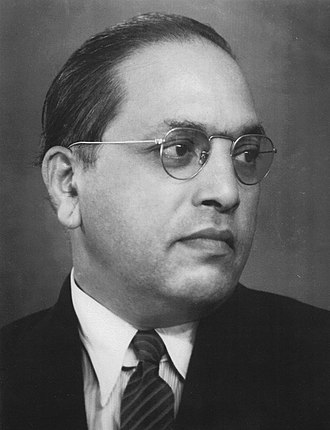
1990
Bhimrao Ramji Ambedkar (14 April 1891 – 6 December 1956), also known as Babasaheb Ambedkar, was an Indian scholar, jurist, economist, politician and social reformer, who inspired the Dalit Buddhist movement and campaigned against social discrimination towards the untouchables (Dalits), while also supporting the rights of women and labour. He was independent India’s first Minister of Law and Justice, the chief architect of the Constitution of India, and a founding father of the Republic of India.
Ambedkar was a prolific student, earning doctorates in economics from both Columbia University and the University of London, and gaining reputation as a scholar for his research in law, economics and political science. In his early career, he was an economist, professor, and lawyer. His later life was marked by his political activities; he became involved in campaigning and negotiations for India’s independence, publishing journals, advocating political rights and social freedom for Dalits, and contributing significantly to the establishment of the state of India. In 1956, he converted to Buddhism, initiating mass conversions of Dalits.In 1990, the Bharat Ratna, India’s highest civilian award, was posthumously conferred upon Ambedkar. Ambedkar’s legacy includes numerous memorials and depictions in popular culture.
Read More About B. R. Ambedkar / Source
Nelson Mandela
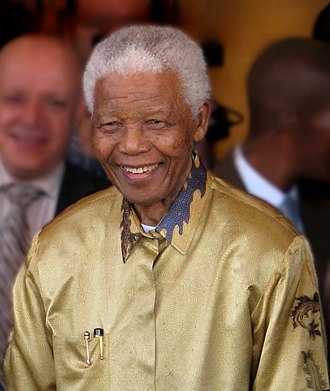
1990
Nelson Rolihlahla Mandela ( 18 July 1918 – 5 December 2013) was a South African anti-apartheid revolutionary, political leader and philanthropist who served as President of South Africa from 1994 to 1999. He was the country’s first black head of state and the first elected in a fully representative democratic election. His government focused on dismantling the legacy of apartheid by tackling institutionalised racism and fostering racial reconciliation. Ideologically an African nationalist and socialist, he served as the president of the African National Congress (ANC) party from 1991 to 1997.
A Xhosa speaker, Mandela was born to the Thembu royal family in Mvezo, Union of South Africa. He studied law at the University of Fort Hare and the University of Witwatersrand before working as a lawyer in Johannesburg. There he became involved in anti-colonial and African nationalist politics, joining the ANC in 1943 and co-founding its Youth League in 1944. After the National Party’s white-only government established apartheid, a system of racial segregation that privileged whites, he and the ANC committed themselves to its overthrow. Mandela was appointed president of the ANC’s Transvaal branch, rising to prominence for his involvement in the 1952 Defiance Campaign and the 1955 Congress of the People. He was repeatedly arrested for seditious activities and was unsuccessfully prosecuted in the 1956 Treason Trial. Influenced by Marxism, he secretly joined the banned South African Communist Party (SACP). Although initially committed to non-violent protest, in association with the SACP he co-founded the militant Umkhonto we Sizwe in 1961 and led a sabotage campaign against the government. He was arrested and imprisoned in 1962, and subsequently sentenced to life imprisonment for conspiring to overthrow the state following the Rivonia Trial.
Mandela served 27 years in prison, split between Robben Island, Pollsmoor Prison and Victor Verster Prison. Amid growing domestic and international pressure, and with fears of a racial civil war, President F. W. de Klerk released him in 1990. Mandela and de Klerk led efforts to negotiate an end to apartheid, which resulted in the 1994 multiracial general election in which Mandela led the ANC to victory and became president. Leading a broad coalition government which promulgated a new constitution, Mandela emphasised reconciliation between the country’s racial groups and created the Truth and Reconciliation Commission to investigate past human rights abuses. Economically, Mandela’s administration retained its predecessor’s liberal framework despite his own socialist beliefs, also introducing measures to encourage land reform, combat poverty and expand healthcare services. Internationally, he acted as mediator in the Pan Am Flight 103 bombing trial and served as secretary-general of the Non-Aligned Movement from 1998 to 1999. He declined a second presidential term and was succeeded by his deputy, Thabo Mbeki. Mandela became an elder statesman and focused on combating poverty and HIV/AIDS through the charitable Nelson Mandela Foundation.
Mandela was a controversial figure for much of his life. Although critics on the right denounced him as a communist terrorist and those on the far-left deemed him too eager to negotiate and reconcile with apartheid’s supporters, he gained international acclaim for his activism. Widely regarded as an icon of democracy and social justice, he received more than 250 honours, including the Nobel Peace Prize. He is held in deep respect within South Africa, where he is often referred to by his Thembu clan name, Madiba, and described as the “Father of the Nation”.
Read More About Nelson Mandela / Source
Vallabhbhai Patel
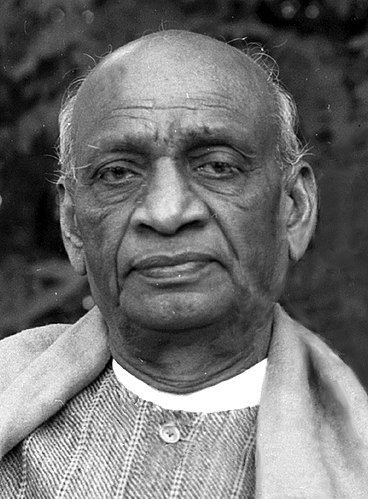
1991
Vallabhbhai Jhaverbhai Patel (31 October 1875 – 15 December 1950), popularly known as Sardar Patel, was an Indian politician. He served as the first Deputy Prime Minister of India. He was an Indian barrister, and a senior leader of the Indian National Congress who played a leading role in the country’s struggle for independence and guided its integration into a united, independent nation. In India and elsewhere, he was often called Sardar, meaning “chief” in Hindi, Urdu, and Persian. He acted as Home Minister during the political integration of India and the Indo-Pakistani War of 1947.Patel was born in Nadiad District Kheda and raised in the countryside of the state of Gujarat. He was a successful lawyer. He subsequently organised peasants from Kheda, Borsad, and Bardoli in Gujarat in non-violent civil disobedience against the British Raj, becoming one of the most influential leaders in Gujarat. He was appointed as the 49th President of Indian National Congress, organising the party for elections in 1934 and 1937 while promoting the Quit India Movement.
As the first Home Minister and Deputy Prime Minister of India, Patel organised relief efforts for refugees fleeing to Punjab and Delhi from Pakistan and worked to restore peace. He led the task of forging a united India, successfully integrating into the newly independent nation those British colonial provinces that had been “allocated” to India.
Besides those provinces that had been under direct British rule, approximately 565 self-governing princely states had been released from British suzerainty by the Indian Independence Act of 1947. Patel persuaded almost every princely state to accede to India. His commitment to national integration in the newly independent country was total and uncompromising, earning him the sobriquet “Iron Man of India”. He is also remembered as the “patron saint of India’s civil servants” for having established the modern all-India services system. He is also called the “Unifier of India”. The Statue of Unity, the world’s tallest statue, was dedicated to him on 31 October 2018 which is approximately 182 metres (597 ft) in height.
Read More About Vallabhbhai Patel / Source
Rajiv Gandhi
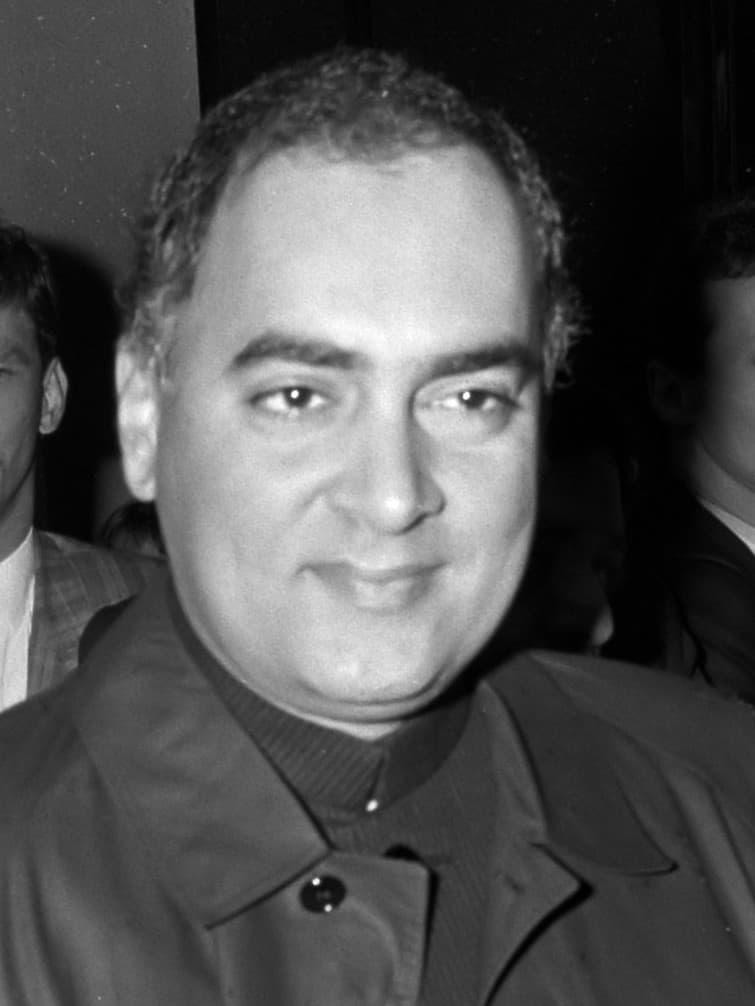
1991
Rajiv Ratna Gandhi (20 August 1944 – 21 May 1991) was an Indian politician who served as the 6th Prime Minister of India from 1984 to 1989. He took office after the 1984 assassination of his mother, Prime Minister Indira Gandhi, to become the youngest Indian Prime Minister at the age of 40.
Gandhi was from the politically powerful Nehru–Gandhi family, which had been associated with the Indian National Congress party. For much of his childhood, his maternal grandfather Jawaharlal Nehru was Prime Minister. Gandhi attended college in the United Kingdom. He returned to India in 1966 and became a professional pilot for the state-owned Indian Airlines. In 1968, he married Sonia Gandhi; the couple settled in Delhi to a domestic life with their children Rahul Gandhi and Priyanka Gandhi Vadra. For much of the 1970s, his mother Indira Gandhi was prime minister and his brother Sanjay Gandhi an MP; despite this, Rajiv Gandhi remained apolitical. After Sanjay’s death in a plane crash in 1980, Gandhi reluctantly entered politics at the behest of Indira. The following year he won his brother’s Parliamentary seat of Amethi and became a member of the Lok Sabha—the lower house of India’s Parliament. As part of his political grooming, Rajiv was made general secretary of the Congress party and given significant responsibility in organising the 1982 Asian Games.
On the morning of 31 October 1984, his mother was assassinated by one of her bodyguards; later that day, Gandhi was appointed Prime Minister. His leadership was tested over the next few days as organised mobs rioted against the Sikh community, resulting in anti-Sikh riots in Delhi. That December, Congress party won the largest Lok Sabha majority to date, 411 seats out of 542. Rajiv Gandhi’s period in office was mired in controversies; perhaps the greatest crises were the Bhopal disaster, Bofors scandal and Mohd. Ahmed Khan v. Shah Bano Begum. In 1988, he reversed the coup in Maldives, antagonising militant Tamil groups such as PLOTE, intervening and then sending peacekeeping troops to Sri Lanka in 1987, leading to open conflict with the Liberation Tigers of Tamil Eelam (LTTE). In mid-1987, the Bofors scandal damaged his corruption-free image and resulted in a major defeat for his party in the 1989 election.
Gandhi remained Congress President until the elections in 1991. While campaigning for the elections, he was assassinated by a suicide bomber from the LTTE. His widow Sonia became the president of the Congress party in 1998 and led the party to victory in the 2004 and 2009 parliamentary elections. His son Rahul Gandhi is a Member of Parliament and was the President of the Indian National Congress till 2019. In 1991, the Indian government posthumously awarded Gandhi the Bharat Ratna, the country’s highest civilian award. At the India Leadership Conclave in 2009, the Revolutionary Leader of Modern India award was conferred posthumously on Gandhi.
Read More About Rajiv Gandhi / Source
Morarji Desai
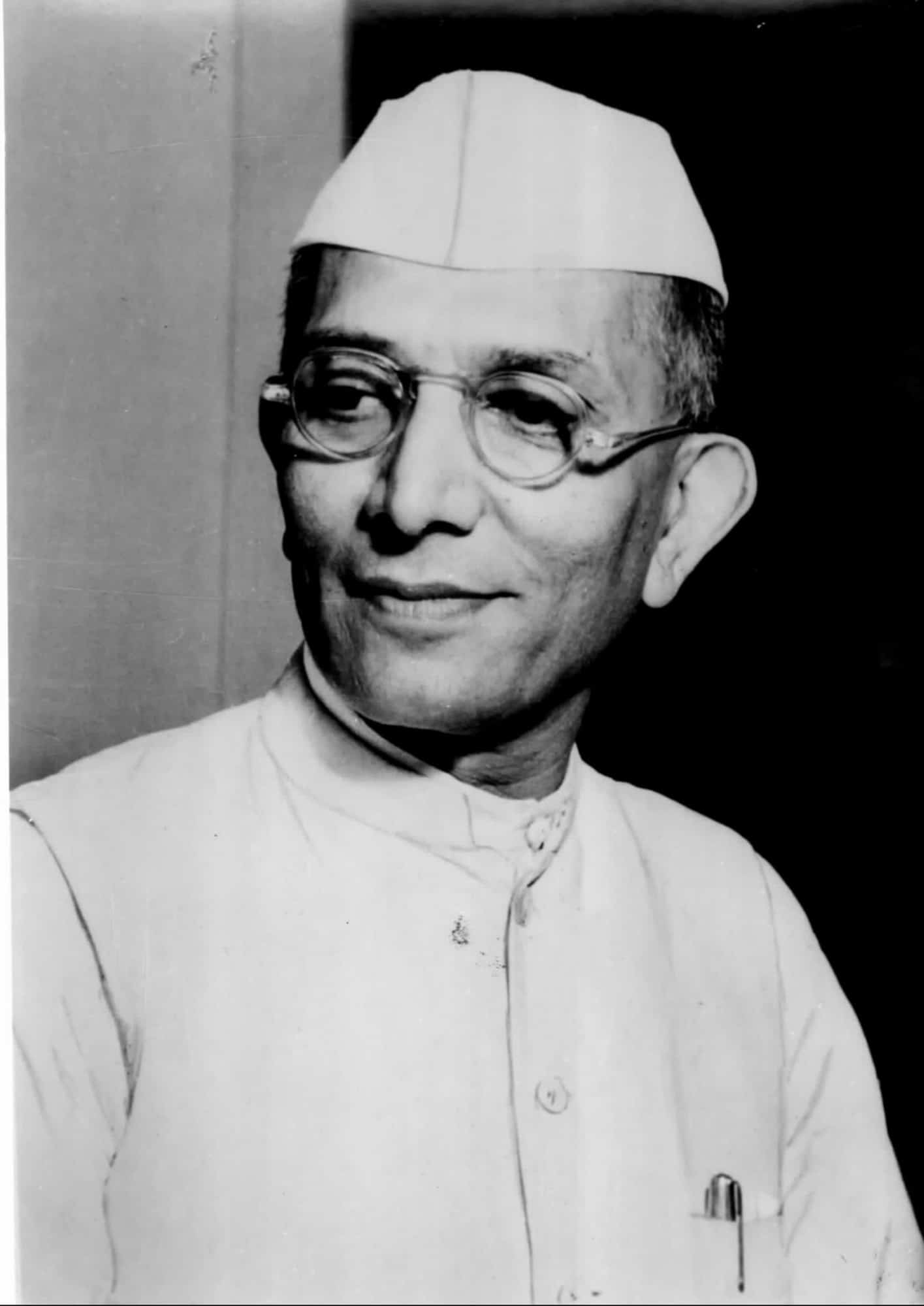
1991
Morarji Ranchhodji Desai (29 February 1896 – 10 April 1995) was an Indian independence activist and served between 1977 and 1979 as the 4th Prime Minister of India and led the government formed by the Janata Party. During his long career in politics, he held many important posts in government such as Chief Minister of Bombay State, Home Minister, Finance Minister and 2nd Deputy Prime Minister of India.
Following the passing of Prime Minister Lal Bahadur Shastri, Desai was a strong contender for the position of Prime Minister, only to be defeated by Indira Gandhi in 1966. He was appointed as Deputy Prime Minister and Minister of Finance in Indira Gandhi’s cabinet, until 1969. He resigned from the Congress during the split of 1969, and joined the INC (O). After the controversial emergency was lifted in 1977, the political parties of the opposition fought together against the Congress, under the umbrella of the Janata Party, and won the 1977 election. Desai was elected Prime Minister, and became the first non-Congress Prime Minister of India.
On the international scene, Desai holds international fame for his peace activism and created efforts to initiate peace between two rival South Asian states, Pakistan and India. After India’s first nuclear test in 1974, Desai helped restore friendly relations with China and Pakistan, and vowed to avoid armed conflict such as Indo-Pakistani war of 1971. He was honoured with the highest civilian award of Pakistan, the Nishan-e-Pakistan on 19 May 1990.
He is the oldest person to hold the office of prime minister, at the age of 81, in the history of Indian politics. He subsequently retired from all political posts, but continued to campaign for the Janata Party in 1980. He was conferred with India’s highest civilian honour, the Bharat Ratna. He died at the age of 99 in 1995.
Read More About Morarji Desai / Source
Abul Kalam Azad
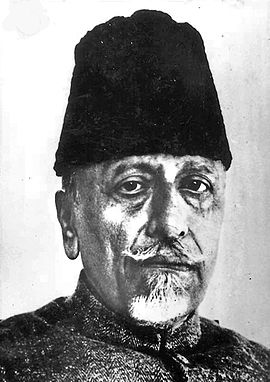
1992
Abul Kalam Ghulam Muhiyuddin Ahmed bin Khairuddin Al-Hussaini Azad pronunciation (11 November 1888 – 22 February 1958) was an Indian scholar, Islamic theologian, independence activist, and a senior leader of the Indian National Congress during the Indian independence movement. Following India’s independence, he became the First Minister of Education in the Indian government. He is commonly remembered as Maulana Azad; the word Maulana is an honorific meaning ‘Our Master’ and he had adopted Azad (Free) as his pen name. His contribution to establishing the education foundation in India is recognised by celebrating his birthday as National Education Day across India.As a young man, Azad composed poetry in Urdu, as well as treatises on religion and philosophy. He rose to prominence through his work as a journalist, publishing works critical of the British Raj and espousing the causes of Indian nationalism. Azad became the leader of the Khilafat Movement, during which he came into close contact with the Indian leader Mahatma Gandhi. Azad became an enthusiastic supporter of Gandhi’s ideas of non-violent civil disobedience, and worked to organise the non-co-operation movement in protest of the 1919 Rowlatt Acts. Azad committed himself to Gandhi’s ideals, including promoting Swadeshi (indigenous) products and the cause of Swaraj (Self-rule) for India. In 1923, at an age of 35, he became the youngest person to serve as the President of the Indian National Congress.
In October 1920, Azad was elected as a member of foundation committee to establish Jamia Millia Islamia at Aligarh in U. P. without taking help from British colonial government. He assisted in shifting the campus of the university from Aligarh to New Delhi in 1934. The main gate (Gate No. 7) to the main campus of the university is named after him.
Azad was one of the main organizers of the Dharasana Satyagraha in 1931, and emerged as one of the most important national leaders of the time, prominently leading the causes of Hindu-Muslim unity as well as espousing secularism and socialism. He served as Congress president from 1940 to 1945, during which the Quit India rebellion was launched. Azad was imprisoned, together with the entire Congress leadership. He also worked for Hindu-Muslim unity through the Al-Hilal newspaper.
Read More About Abul Kalam Azad / Source
J. R. D. Tata
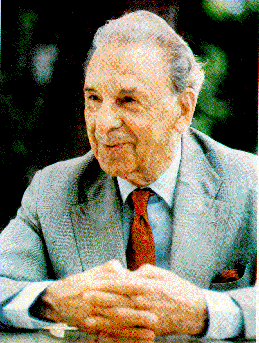
1992
Jehangir Ratanji Dadabhoy Tata (29 July 1904 – 29 November 1993) was an Indian aviator, industrialist, entrepreneur and chairman of Tata Group.
Born into the Tata family of India, he was the son of noted businessman Ratanji Dadabhoy Tata and his wife Suzanne Brière. His mother was the first woman in India to drive a car and, in 1929, he became the first licensed pilot in India. He is also best known for being the founder of several industries under the Tata Group, including Tata Consultancy Services, Tata Motors, Titan Industries, Tata Salt, Voltas and Air India. In 1983, he was awarded the French Legion of Honour and in 1955 and 1992, he received two of India’s highest civilian awards the Padma Vibhushan and the Bharat Ratna. These honours were bestowed on him for his contributions to Indian industry.
Read More About J. R. D. Tata / Source
Satyajit Ray
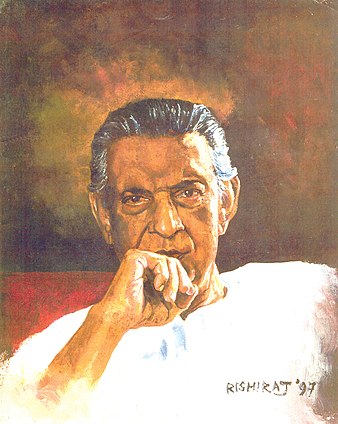
1992
Satyajit Ray (2 May 1921 – 23 April 1992) was an Indian film director, writer, illustrator and music composer. He is widely considered to have been one of the greatest filmmakers of all time, celebrated for works such as The Apu Trilogy (1955–59), The Music Room (1958), The Big City (1963) and Charulata (1964). Ray was born in Calcutta into a Bengali Kayastha family which was prominent in the field of arts and literature. Starting his career as a commercial artist, he was drawn into independent filmmaking after meeting French filmmaker Jean Renoir and viewing Vittorio De Sica’s Italian neorealist film Bicycle Thieves (1948) during a visit to London.
Ray directed 36 films, including feature films, documentaries and shorts. He was also a fiction writer, publisher, illustrator, calligrapher, music composer, graphic designer and film critic. He authored several short stories and novels, primarily for young children and teenagers. Feluda, the sleuth, and Professor Shonku, the scientist in his science fiction stories, are popular fictional characters created by him. In 1978, he was awarded an honorary degree by Oxford University.
Ray’s first film, Pather Panchali (1955), won eleven international prizes, including the inaugural Best Human Document award at the 1956 Cannes Film Festival. This film, along with Aparajito (1956) and Apur Sansar (The World of Apu) (1959), form The Apu Trilogy. Ray did the scripting, casting, scoring, and editing, and designed his own credit titles and publicity material. Ray received many major awards in his career, including 32 Indian National Film Awards, a Golden Lion, a Golden Bear, 2 Silver Bears, a number of additional awards at international film festivals and ceremonies, and an Academy Honorary Award in 1992. The Government of India honoured him with the Bharat Ratna, its highest civilian award, in 1992. Ray had received many noticeable awards and gained a prestigious position over his life time.
Read More About Satyajit Ray / Source
Gulzarilal Nanda
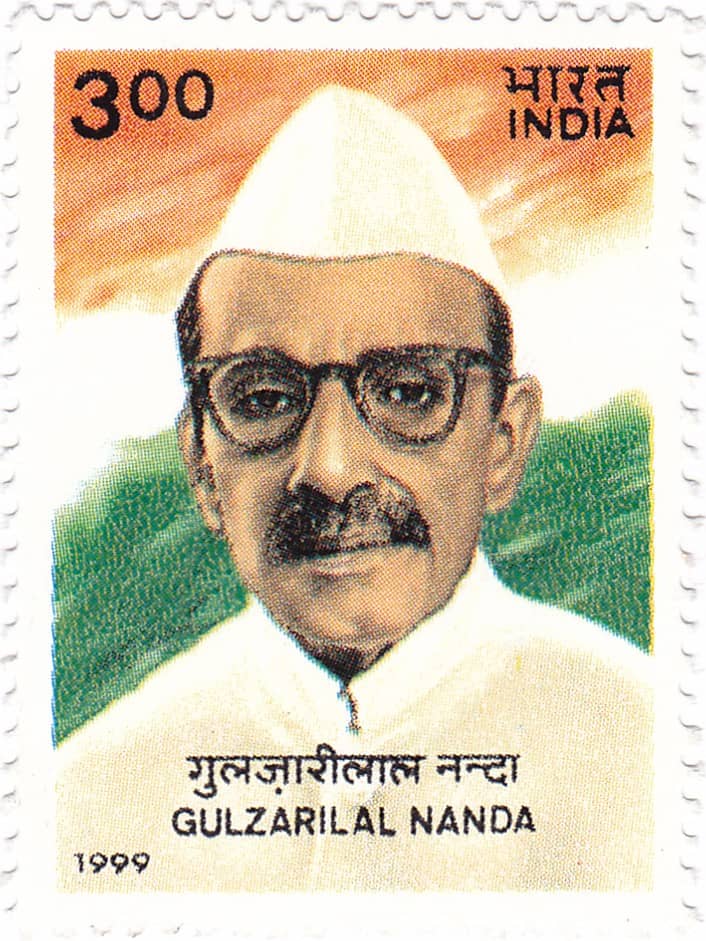
1997
Gulzarilal Nanda (4 July 1898 – 15 January 1998) was an Indian politician and economist who specialized in labour issues. He was the Acting Prime Minister of India for two short periods following the deaths of Jawaharlal Nehru in 1964 and Lal Bahadur Shastri in 1966. Both his terms ended after the ruling Indian National Congress’s parliamentary party elected a new prime minister. He was awarded the Bharat Ratna, India’s highest civilian award, in 1997.
Read More About Gulzarilal Nanda / Source
Aruna Asaf Ali
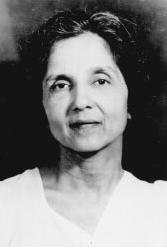
1997
Aruna Asaf Ali ( Ganguly ) (16 July 1909 – 29 July 1996 ) was an Indian educator, political activist, and publisher. An active participant in the Indian independence movement, she is widely remembered for hoisting the Indian National flag at the Gowalia Tank maidan, Bombay during a Quit India Movement in 1942. Post-independence, she remained active in politics, becoming Delhi’s first Mayor.
Read More About Aruna Asaf Ali / Source
A. P. J. Abdul Kalam
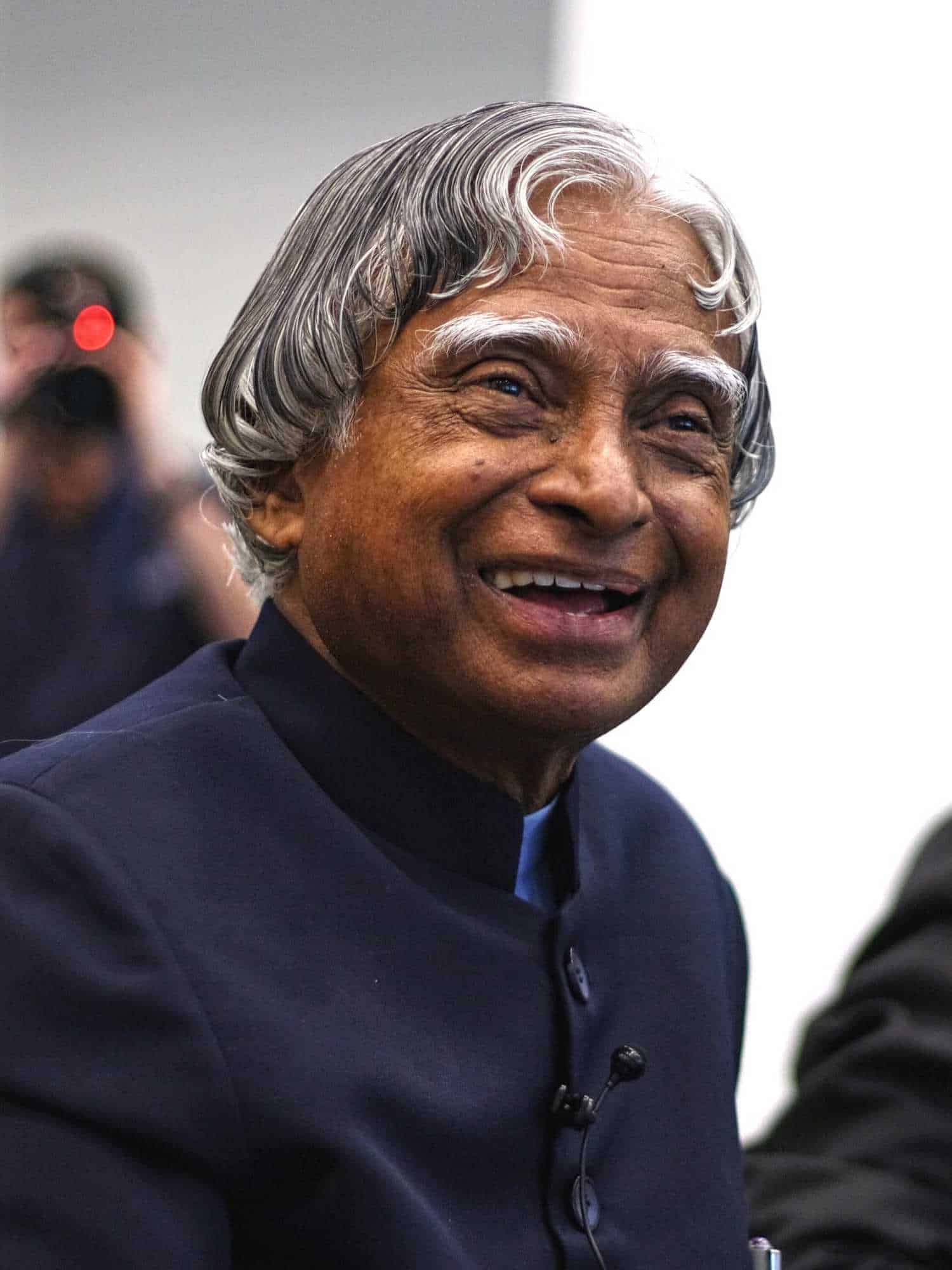
1997
Avul Pakir Jainulabdeen Abdul Kalam (15 October 1931 – 27 July 2015) was an Indian aerospace scientist and politician who served as the 11th President of India from 2002 to 2007. He was born and raised in Rameswaram, Tamil Nadu and studied physics and aerospace engineering. He spent the next four decades as a scientist and science administrator, mainly at the Defence Research and Development Organisation (DRDO) and Indian Space Research Organisation (ISRO) and was intimately involved in India’s civilian space programme and military missile development efforts. He thus came to be known as the Missile Man of India for his work on the development of ballistic missile and launch vehicle technology. He also played a pivotal organisational, technical, and political role in India’s Pokhran-II nuclear tests in 1998, the first since the original nuclear test by India in 1974.Kalam was elected as the 11th President of India in 2002 with the support of both the ruling Bharatiya Janata Party and the then-opposition Indian National Congress. Widely referred to as the “People’s President”, he returned to his civilian life of education, writing and public service after a single term. He was a recipient of several prestigious awards, including the Bharat Ratna, India’s highest civilian honour.
While delivering a lecture at the Indian Institute of Management Shillong, Kalam collapsed and died from an apparent cardiac arrest on 27 July 2015, aged 83. Thousands, including national-level dignitaries, attended the funeral ceremony held in his hometown of Rameswaram, where he was buried with full state honours.
Read More About A. P. J. Abdul Kalam / Source
M. S. Subbulakshmi
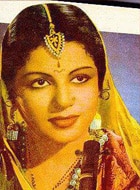
1998
Madurai Shanmukhavadivu Subbulakshmi (16 September 1916 – 11 December 2004) was an Indian Carnatic singer from Madurai, Tamil Nadu. She was the first musician ever to be awarded the Bharat Ratna, India’s highest civilian honour. She is the first Indian musician to receive the Ramon Magsaysay award, often considered Asia’s Nobel Prize, in 1974 with the citation reading “Exacting purists acknowledge Srimati M. S. Subbulakshmi as the leading exponent of classical and semi-classical songs in the carnatic tradition of South India. She was the First Indian who performed in United Nations General Assembly in 1966.”
Read More About M. S. Subbulakshmi / Source
Chidambaram Subramaniam
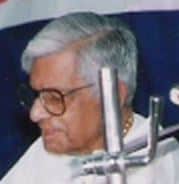
1998
Chidambaram Subramaniam (commonly known as CS) (30 January 1910 – 7 November 2000), was an Indian politician and Independence activist. He served as Minister of Finance and Minister of Defence in the union cabinet. He later served as the Governor of Maharashtra. As the Minister for Food and Agriculture, he ushered the Indian Green Revolution, an era of self-sufficiency in food production along with M. S. Swaminathan, B. Sivaraman and Norman E. Borlaug. He was awarded Bharat Ratna, Indian’s highest civilian award, in 1998, for his role in ushering Green Revolution.
Read More About Chidambaram Subramaniam / Source
Jayaprakash Narayan
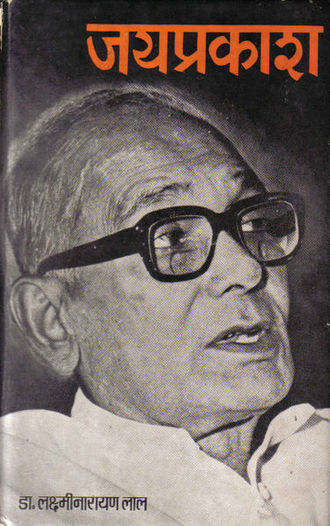
1999
Jayaprakash Narayan ( 11 October 1902 – 8 October 1979), popularly referred to as JP or Lok Nayak (Hindi for The People’s Leader), was an Indian independence activist, theorist, socialist and political leader. He is also known as the “Hero of Quit India Movement” and he is remembered for leading the mid-1970s opposition against Prime Minister Indira Gandhi, for whose overthrow he had called for a “total revolution”. His biography, Jayaprakash, was written by his nationalist friend and an eminent writer of Hindi literature, Rambriksh Benipuri. In 1999, he was posthumously awarded the Bharat Ratna, India’s highest civilian award, in recognition of his social work. Other awards include the Magsaysay award for Public Service in 1965.
Read More About Jayaprakash Narayan / Source
Amartya Sen
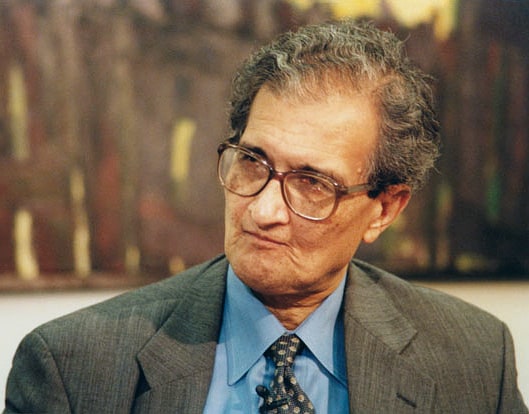
1999
Amartya Kumar Sen (born 3 November 1933) is an Indian economist, who since 1972 has taught and worked in the United Kingdom and the United States. Sen has made contributions to welfare economics, social choice theory, economic and social justice, economic theories of famines, decision theory, development economics, public health, and measures of well-being of countries.
He is currently Thomas W. Lamont University Professor, and Professor of Economics and Philosophy at Harvard University. He was awarded the Nobel Memorial Prize in Economic Sciences in 1998 and India’s Bharat Ratna in 1999 for his work in welfare economics. The German Publishers and Booksellers Association awarded him the 2020 Peace Prize of the German Book Trade for his pioneering scholarship addressing issues of global justice and combating social inequality in education and healthcare.
Read More About Amartya Sen / Source
Gopinath Bordoloi
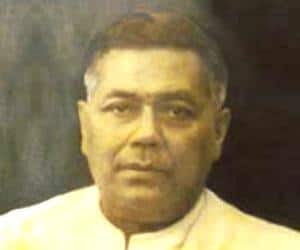
1999
Gopinath Bordoloi (6 June 1890 – 5 August 1950) was a politician and Indian independence activist who served as the first Chief Minister of Assam. He was a follower of the Gandhian principle of non-violence as a political tool. Due to his unselfish dedication towards Assam and its people, the then Governor of Assam Jayram Das Doulatram conferred him with the title “Lokapriya” (loved by all).
Read More About Gopinath Bordoloi / Source
Ravi Shankar
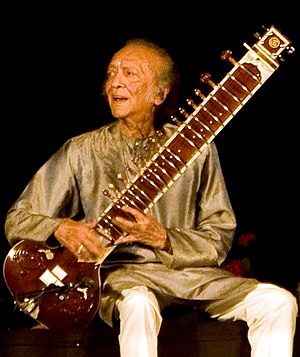
1999
Ravi Shankar (born Robindro Shaunkor Chowdhury, spelled Ravindra Shankar Chowdhury 7 April 1920 – 11 December 2012), whose name is often preceded by the title Pandit (Master), was an Indian sitar virtuoso and a composer. He was the best-known proponent of the sitar in the second half of the 20th century and influenced many other musicians throughout the world. Shankar was awarded India’s highest civilian honour, the Bharat Ratna, in 1999.
Shankar was born to a Bengali Brahmin family in India, and spent his youth as a dancer touring India and Europe with the dance group of his brother Uday Shankar. He gave up dancing in 1938 to study sitar playing under court musician Allauddin Khan. After finishing his studies in 1944, Shankar worked as a composer, creating the music for the Apu Trilogy by Satyajit Ray, and was music director of All India Radio, New Delhi, from 1949 to 1956.
In 1956, Shankar began to tour Europe and the Americas playing Indian classical music and increased its popularity there in the 1960s through teaching, performance, and his association with violinist Yehudi Menuhin and Beatles guitarist George Harrison. His influence on Harrison helped popularize the use of Indian instruments in Western pop music in the latter half of the 1960s. Shankar engaged Western music by writing compositions for sitar and orchestra, and toured the world in the 1970s and 1980s. From 1986 to 1992, he served as a nominated member of Rajya Sabha, the upper chamber of the Parliament of India. He continued to perform until the end of his life.
Read More About Ravi Shankar / Source
Lata Mangeshkar
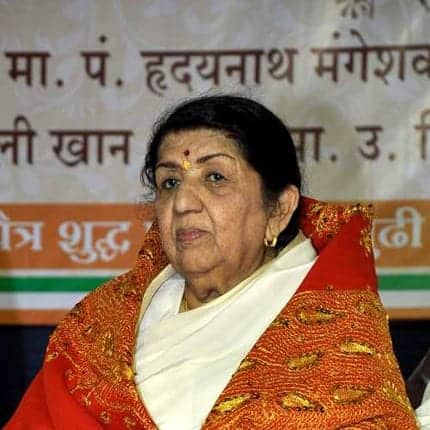
2001
Lata Mangeshkar (born as Hema Mangeshkar on 28 September 1929) is an Indian playback singer and music director. She is one of the best-known and most respected playback singers in India. She has recorded songs in over a thousand Hindi films and has sung songs in over thirty-six regional Indian languages and foreign languages, though primarily in Marathi, Hindi, Bengali and Assamese.
The Dadasaheb Phalke Award was bestowed on her in 1989 by the Government of India. In 2001, in recognition of her contributions to the nation, she was awarded the Bharat Ratna, India’s highest civilian honour and is only the second vocalist, after M. S. Subbulakshmi, to receive this honour. France conferred on her its highest civilian award, the Officer of the Legion of Honour, in 2007. She is the recipient of three National Film Awards, 15 Bengal Film Journalists’ Association Awards, four Filmfare Best Female Playback Awards, two Filmfare Special Awards, Filmfare Lifetime Achievement Award and many more. In 1974, she became the first Indian to perform in the Royal Albert Hall.
She has four siblings—Meena Khadikar, Asha Bhosle, Usha Mangeshkar, and Hridaynath Mangeshkar—of whom she is the eldest.
Read More About Lata Mangeshkar / Source
Bismillah Khan
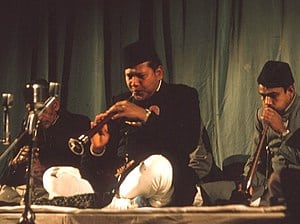
2001
Ustad Qamruddin “Bismillah” Khan (21 March 1916 – 21 August 2006) (born as Qamaruddin Khan), often referred to by the title Ustad, was an Indian musician credited with popularizing the shehnai, a subcontinental wind instrument of the oboe class. While the shehnai had long held importance as a folk instrument played primarily [schooled] in traditional ceremonies, Khan is credited with elevating its status and bringing it to the concert stage.He was awarded India’s highest civilian honour, the Bharat Ratna, in 2001, becoming the third classical musician after M. S. Subbalakshmi and Ravi Shankar to be awarded Bharat Ratna. On his 102nd birthday, Google honored Bismillah Khan with a Google doodle.
Read More About Bismillah Khan / Source
Bhimsen Joshi
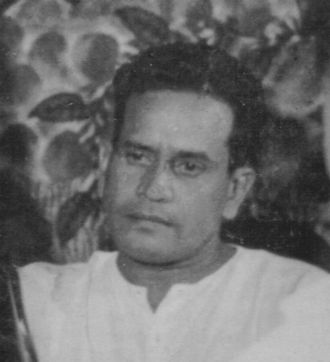
2009
Pandit Bhimsen Gururaj Joshi ( 4 February 1922 – 24 January 2011) was an Indian vocalist from Karnataka, in the Hindustani classical tradition. He is known for the khayal form of singing, as well as for his popular renditions of devotional music (bhajans and abhangs). Bhimsen Joshi belongs to the Kirana gharana tradition of Hindustani Classical Music. Pt. Joshi is noted for his concerts, and between 1964 to 1982 Joshi toured Afghanistan, Italy, France, Canada and USA. He was the first musician from India whose concerts were advertised through posters in New York city, United States. Bhimsen Joshi was instrumental in organising the Sawai Gandharva Music Festival annually, as homage to his guru, Pandit Sawai Gandharva.In 1998, he was awarded the Sangeet Natak Akademi Fellowship, the highest honour conferred by Sangeet Natak Akademi, India’s National Academy for Music, Dance and Drama. Subsequently, he received the Bharat Ratna, India’s highest civilian honour, in 2009.
Read More About Bhimsen Joshi / Source
C. N. R. Rao
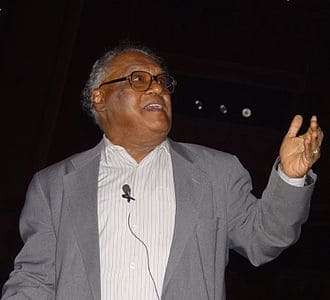
2014
Chintamani Nagesa Ramachandra Rao FRS, also known as C. N. R. Rao (born 30 June 1934), is an Indian chemist who has worked mainly in solid-state and structural chemistry. He has honorary doctorates from 60 universities from around the world, and has authored around 1,600 research publications and 51 books. He is described as a scientist who had won all possible awards in his field except the Nobel Prize.A precocious child, Rao completed BSc from Mysore University at age seventeen, and MSc from Banaras Hindu University at age nineteen. He earned a PhD from Purdue University at age twenty-four. He was the youngest lecturer when he joined the Indian Institute of Science in 1959. After a transfer to Indian Institute of Technology Kanpur, he returned to IISc, eventually becoming its Director from 1984 to 1994. He was Chair of the Scientific Advisory Council to the Prime Minister of India during 1985 to 1989 and 2005 to 2014. He found and works in Jawaharlal Nehru Centre for Advanced Scientific Research and International Centre for Materials Science.
Rao received most important scientific awards and honours including the Marlow Medal, Shanti Swarup Bhatnagar Prize for Science and Technology, Hughes Medal, India Science Award, Dan David Prize, and Royal Medal. He also received Padma Shri and Padma Vibhushan from Government of India. On 16 November 2013, the Government of India selected him for Bharat Ratna, the highest civilian award in India, making him the third scientist after C.V. Raman and A. P. J. Abdul Kalam to receive the award. He received the award on 4 February 2014 from President Pranab Mukherjee at the Rashtrapati Bhavan.
Read More About C. N. R. Rao / Source
Sachin Tendulkar
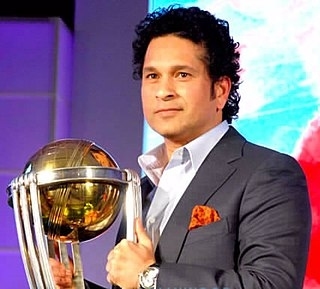
2014
Sachin Ramesh Tendulkar ( born 24 April 1973) is an Indian former international cricketer who served as captain of the Indian national team. He is widely regarded as one of the greatest batsmen in the history of cricket. He is the highest run scorer of all time in International cricket. Considered as the world’s most prolific batsman of all time, he is the only player to have scored one hundred international centuries, the first batsman to score a double century in a One Day International (ODI), the holder of the record for the most runs in both Test and ODI cricket, and the only player to complete more than 30,000 runs in international cricket. In 2013, he was the only Indian cricketer included in an all-time Test World XI named to mark the 150th anniversary of Wisden Cricketers’ Almanack. He is affectionately known as Little Master or Master Blaster.Tendulkar took up cricket at the age of eleven, made his Test debut on 15 November 1989 against Pakistan in Karachi at the age of sixteen, and went on to represent Mumbai domestically and India internationally for close to twenty-four years. In 2002, halfway through his career, Wisden Cricketers’ Almanack ranked him the second-greatest Test batsman of all time, behind Don Bradman, and the second-greatest ODI batsman of all time, behind Viv Richards. Later in his career, Tendulkar was a part of the Indian team that won the 2011 World Cup, his first win in six World Cup appearances for India. He had previously been named “Player of the Tournament” at the 2003 edition of the tournament, held in South Africa.
Tendulkar received the Arjuna Award in 1994 for his outstanding sporting achievement, the Rajiv Gandhi Khel Ratna award in 1997, India’s highest sporting honour, and the Padma Shri and Padma Vibhushan awards in 1999 and 2008, respectively, India’s fourth- and second-highest civilian awards. After a few hours of his final match on 16 November 2013, the Prime Minister’s Office announced the decision to award him the Bharat Ratna, India’s highest civilian award. He is the youngest recipient to date and the first ever sportsperson to receive the award. He also won the 2010 Sir Garfield Sobers Trophy for cricketer of the year at the ICC awards. In 2012, Tendulkar was nominated to the Rajya Sabha, the upper house of the Parliament of India. He was also the first sportsperson and the first person without an aviation background to be awarded the honorary rank of group captain by the Indian Air Force. In 2012, he was named an Honorary Member of the Order of Australia.In 2010, Time magazine included Sachin in its annual Time 100 list as one of the “Most Influential People in the World”.
In December 2012, Tendulkar announced his retirement from ODIs. He retired from Twenty20 cricket in October 2013 and subsequently retired from all forms of cricket on 16 November 2013 after playing his 200th Test match, against the West Indies in Mumbai’s Wankhede Stadium. Tendulkar played 664 international cricket matches in total, scoring 34,357 runs.In 2019, Tendulkar was inducted into the ICC Cricket Hall of Fame.
Read More About Sachin Tendulkar / Source
Madan Mohan Malaviya
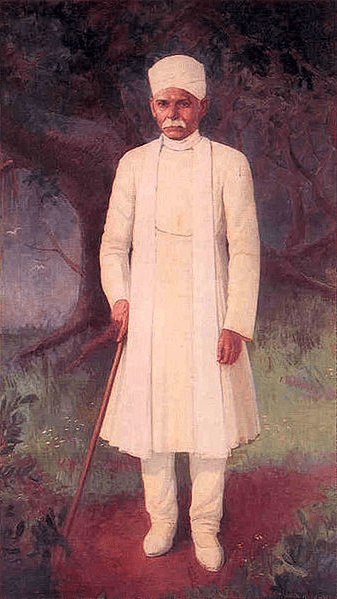
2015
Pandit Madan Mohan Malaviya (25 December 1861 – 12 November 1946) was an Indian scholar, educational reformer and politician notable for his role in the Indian independence movement, as the four times president of Indian National Congress and the founder of Akhil Bharatiya Hindu Mahasabha. He was respectfully addressed as Pandit Madan Mohan Malaviya and also addressed as Mahamana.Malaviya strived to promote modern education among Indians and eventually cofounded Banaras Hindu University (BHU) at Varanasi in 1916, which was created under the B.H.U. Act, 1915. The largest residential university in Asia and one of the largest in the world, having over 40,000 students across arts, commerce, sciences, engineering, linguistic, Ritual medical, agriculture, performing arts, law and technology from all over the world. He was Vice Chancellor of Banaras Hindu University from 1919–1938.He is also remembered for his role in ending the Indian indenture system, especially in the Caribbean. His efforts in helping the Indo-Caribbeans is compared to Mahatma Gandhi’s efforts of helping Indian South Africans.Malaviya was one of the founders of Scouting in India. He also founded a highly influential, English-newspaper, The Leader published from Prayagaraj in 1909. He was also the Chairman of Hindustan Times from 1924 to 1946. His efforts resulted in the launch of its Hindi edition named Hindustan Dainik in 1936.He was posthumously conferred with Bharat Ratna, India’s highest civilian award, on 24 December 2014, a day before his 153rd Birth Anniversary.
Read More About Madan Mohan Malaviya / Source
Atal Bihari Vajpayee
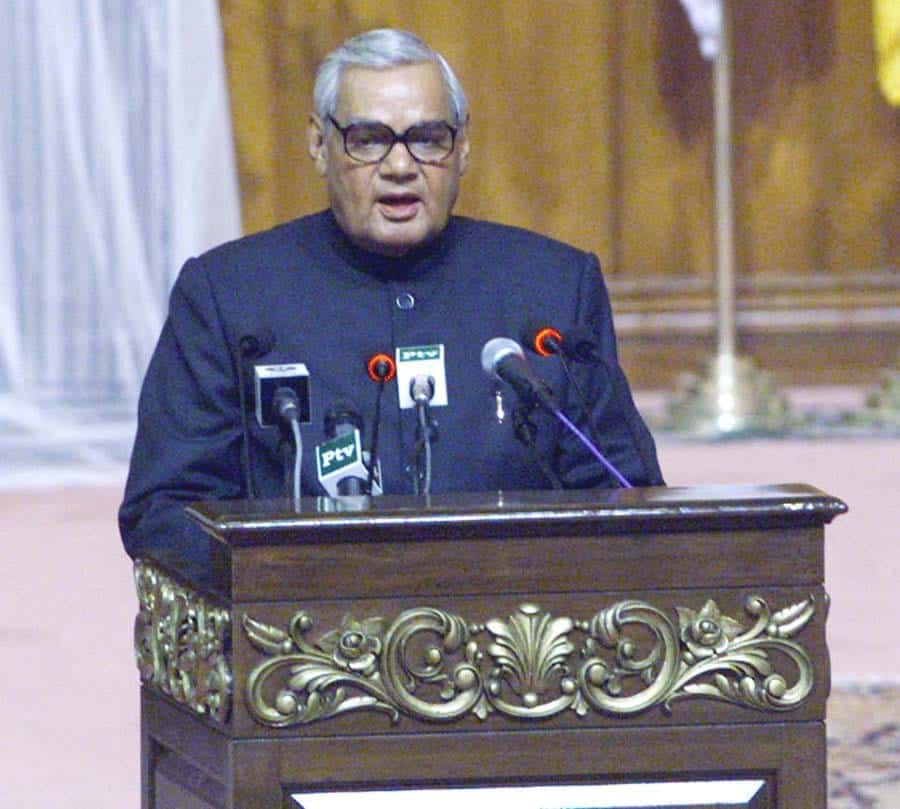
2015
Atal Bihari Vajpayee (25 December 1924 – 16 August 2018) was an Indian statesman who served three terms as the Prime Minister of India, first for a term of 13 days in 1996, then for a period of 13 months from 1998 to 1999, followed by a full term from 1999 to 2004. A member of the Bharatiya Janata Party (BJP), he was the first Indian prime minister not of the Indian National Congress to serve a full term in office. He was also noted as a poet and a writer.
He was a member of the Indian Parliament for over five decades, having been elected ten times to the Lok Sabha, the lower house, and twice to the Rajya Sabha, the upper house. He served as the Member of Parliament for Lucknow, retiring from active politics in 2009 due to health concerns. He was among the founding members of the Bharatiya Jana Sangh (BJS), of which he was president from 1968 to 1972. The BJS merged with several other parties to form the Janata Party, which won the 1977 general election. In March 1977, Vajpayee became the Minister of External Affairs in the cabinet of Prime Minister Morarji Desai. He resigned in 1979, and the Janata alliance collapsed soon after. Former members of the BJS formed the BJP in 1980, with Vajpayee its first president.
During his tenure as prime minister, India carried out the Pokhran-II nuclear tests in 1998. Vajpayee sought to improve diplomatic relations with Pakistan, travelling to Lahore by bus to meet with Prime Minister Nawaz Sharif. After the 1999 Kargil War with Pakistan, he sought to restore relations through engagement with President Pervez Musharraf, inviting him to India for a summit at Agra.
The administration of Narendra Modi declared in 2014 that Vajpayee’s birthday, 25 December, would be marked as Good Governance Day. In 2015, he was conferred India’s highest civilian honour, the Bharat Ratna, by the President of India, Pranab Mukherjee. He died on 16 August 2018 of age-related illness.
Read More About Atal Bihari Vajpayee / Source
Pranab Mukherjee
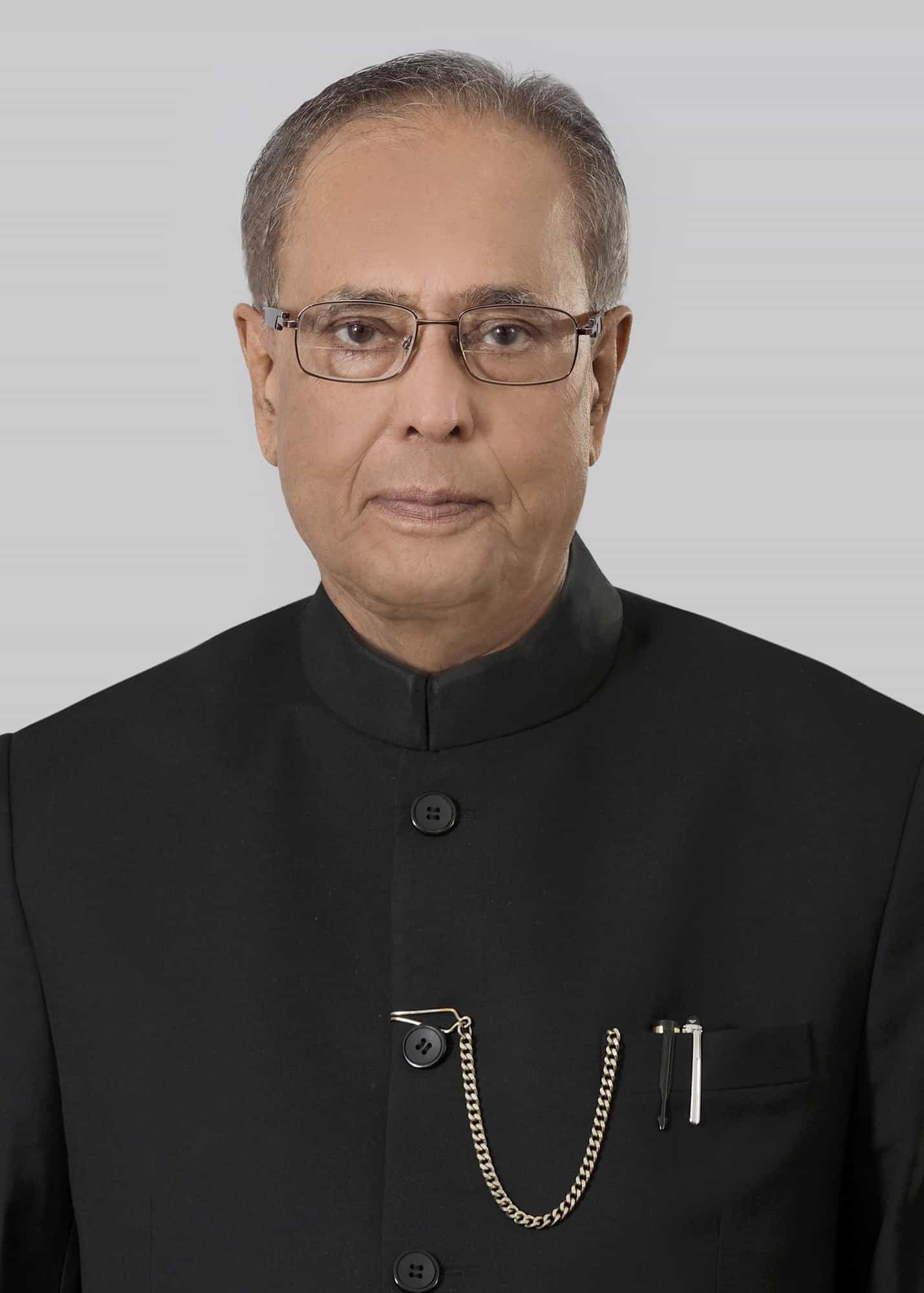
2019
Pranab Kumar Mukherjee (Bengali pronunciation: [prɔnɔb kuːmaːr mukʰardʒi̯]; 11 December 1935 – 31 August 2020) was an Indian politician who served as the 13th President of India from 2012 until 2017. In a political career spanning five decades, Mukherjee was a senior leader in the Indian National Congress and occupied several ministerial portfolios in the Government of India. Prior to his election as President, Mukherjee was Union Finance Minister from 2009 to 2012. He was awarded India’s highest civilian honour, the Bharat Ratna, in 2019, by the President of India, Ram Nath Kovind.Mukherjee got his break in politics in 1969 when the then Prime Minister Indira Gandhi helped him get elected to the Rajya Sabha, the upper house of Parliament of India, on a Congress ticket. Following a meteoric rise, he became one of Gandhi’s most trusted lieutenants and a minister in her cabinet in 1973. Mukherjee’s service in a number of ministerial capacities culminated in his first stint as Finance Minister of India in 1982–84. He was also the Leader of the House in the Rajya Sabha from 1980 to 1985.Mukherjee was sidelined from Congress during the premiership of Rajiv Gandhi. Mukherjee had viewed himself and not the inexperienced Rajiv, as the rightful successor to Indira following her assassination in 1984. Mukherjee lost out in the ensuing power struggle. He formed his own party, the Rashtriya Samajwadi Congress, which merged with Congress in 1989 after reaching a consensus with Rajiv Gandhi. After Rajiv Gandhi’s assassination in 1991, Mukherjee’s political career was revived when Prime Minister P. V. Narasimha Rao appointed him Planning Commission head in 1991 and foreign minister in 1995. Following this, as elder statesman of Congress, Mukherjee was the principal architect of Sonia Gandhi’s ascent to the party’s presidency in 1998.When the Congress-led United Progressive Alliance (UPA) came to power in 2004, Mukherjee won a Lok Sabha (the popularly elected lower house of Parliament) seat for the first time. From then until his resignation in 2012, he held a number of key cabinet portfolios in Prime Minister Manmohan Singh’s government – Defence (2004–06), External Affairs (2006–09), and Finance (2009–12) – apart from heading several Groups of Ministers (GoMs) and being Leader of the House in the Lok Sabha. After securing the UPA’s nomination for the country’s presidency in July 2012, Mukherjee comfortably defeated P. A. Sangma in the race to the Rashtrapati Bhavan (the Indian presidential residence), winning 70 percent of the electoral-college vote.In 2017, Mukherjee decided not to run for re-election and to retire from politics after leaving the presidency due to “health complications relating to old age.” His term expired on 25 July 2017. He was succeeded as President by Ram Nath Kovind. In June 2018, Mukherjee became the first former President of India to address a Rashtriya Swayamsevak Sangh (RSS) event.
Read More About Pranab Mukherjee / Source
Nanaji Deshmukh
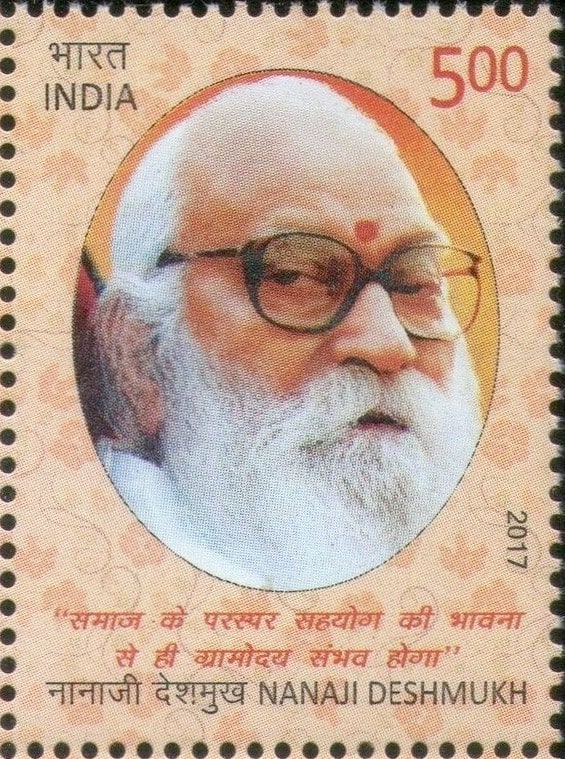
2019
Chandikadas Amritrao Deshmukh also known as Nanaji Deshmukh (11 October 1916 – 27 February 2010) was a social reformer and politician from India. He worked in the fields of education, health, and rural self-reliance. He was honoured with the Padma Vibhushan in 1999. He was posthumously awarded the Bharat Ratna, India’s highest civilian award in 2019 by Government of India. He was a leader of the Bharatiya Jana Sangh and also a member of the Rajya Sabha.
Read More About Nanaji Deshmukh / Source
Bhupen Hazarika
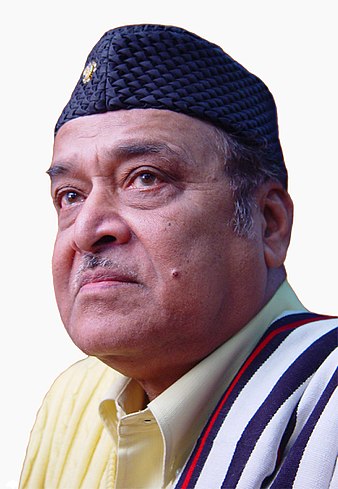
2019
Dr. Bhupen Hazarika (8 September 1926 – 5 November 2011) was an Indian playback singer, lyricist, musician, poet and filmmaker from Assam, widely known as Xudha kontho (सुधाकण्ठ, meaning cuckoo, literally “nectar-throated”). His songs, written and sung mainly in the Assamese language by himself, are marked by humanity and universal brotherhood and have been translated and sung in many languages, most notably in Bengali and Hindi. His songs, based on the themes of communal amity, universal justice and empathy, are especially popular among the people of Assam (India), West Bengal and Bangladesh. He is also acknowledged to have introduced the culture and folk music of Assam and Northeast India to Hindi cinema at the national level. He received the National Film Award for Best Music Direction in 1975, the Sangeet Natak Akademi Award (1987), Padmashri (1977), and Padmabhushan (2001), Dada Saheb Phalke Award (1992), the highest award for cinema in India and Sangeet Natak Akademi Fellowship (2008), the highest award of the Sangeet Natak Akademi. He was posthumously awarded both the Padma Vibhushan, India’s second-highest civilian award, in 2012, and the Bharat Ratna, India’s highest civilian award, in 2019. Hazarika also held the position of the Chairman of the Sangeet Natak Akademi from December 1998 to December 2003.
Read More About Bhupen Hazarika / Source





